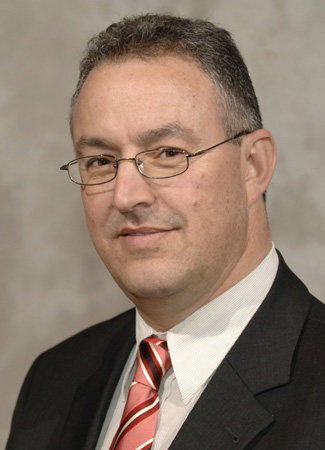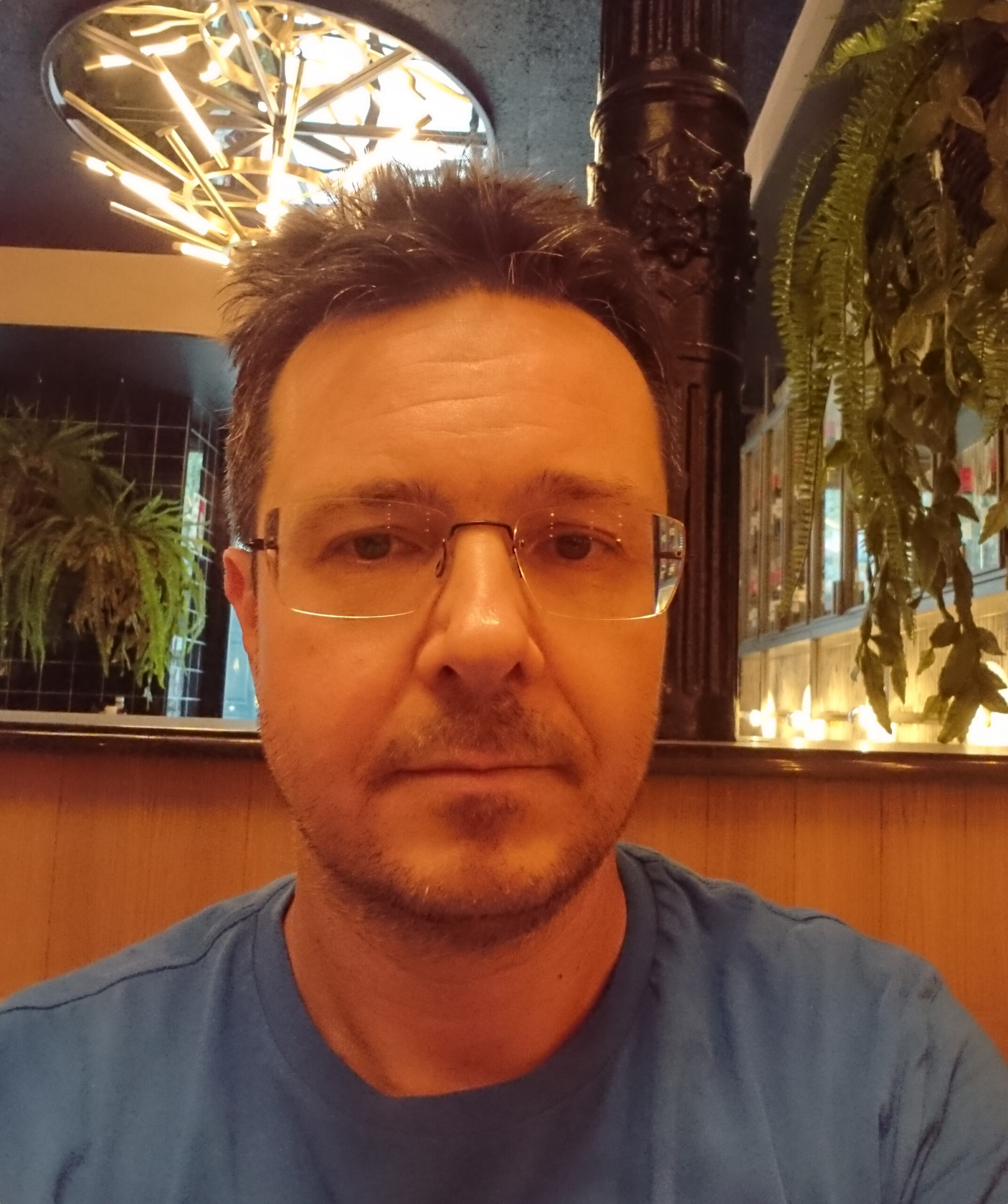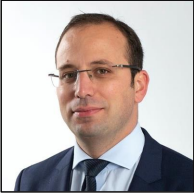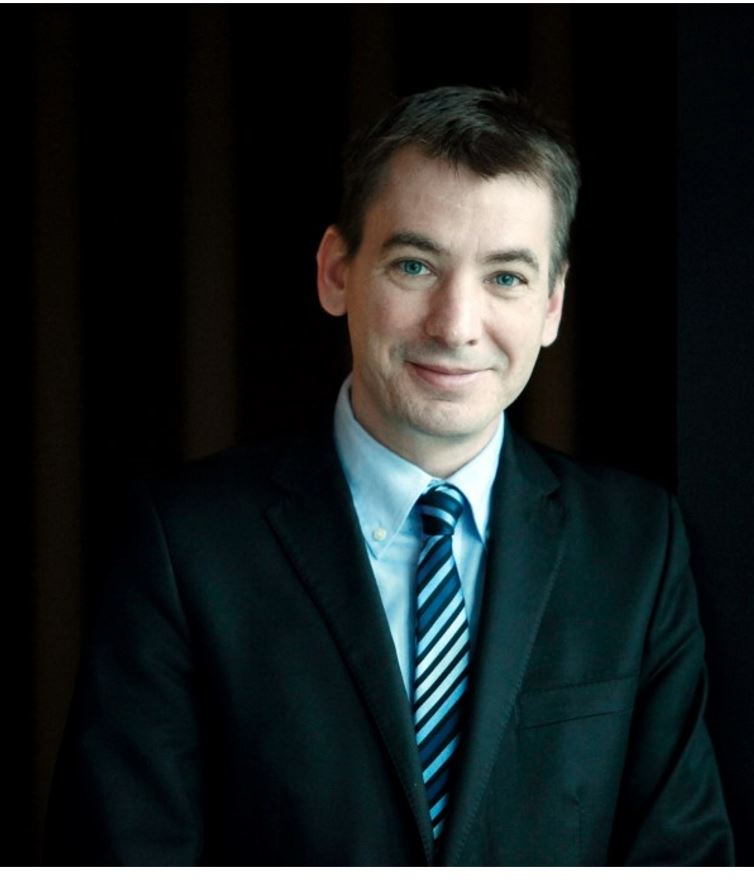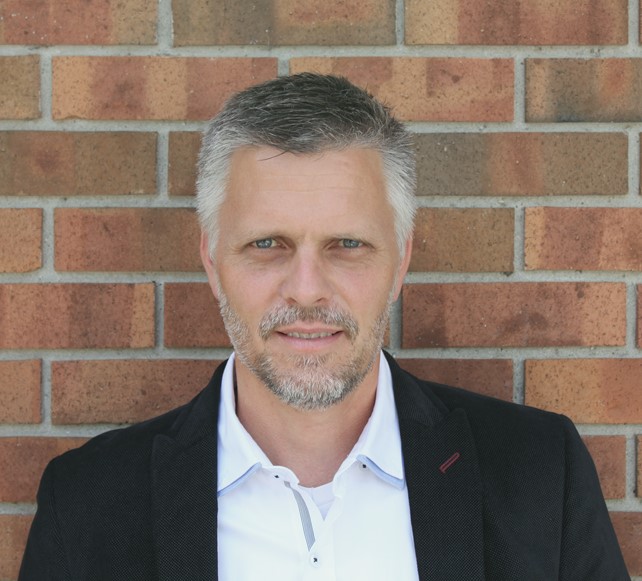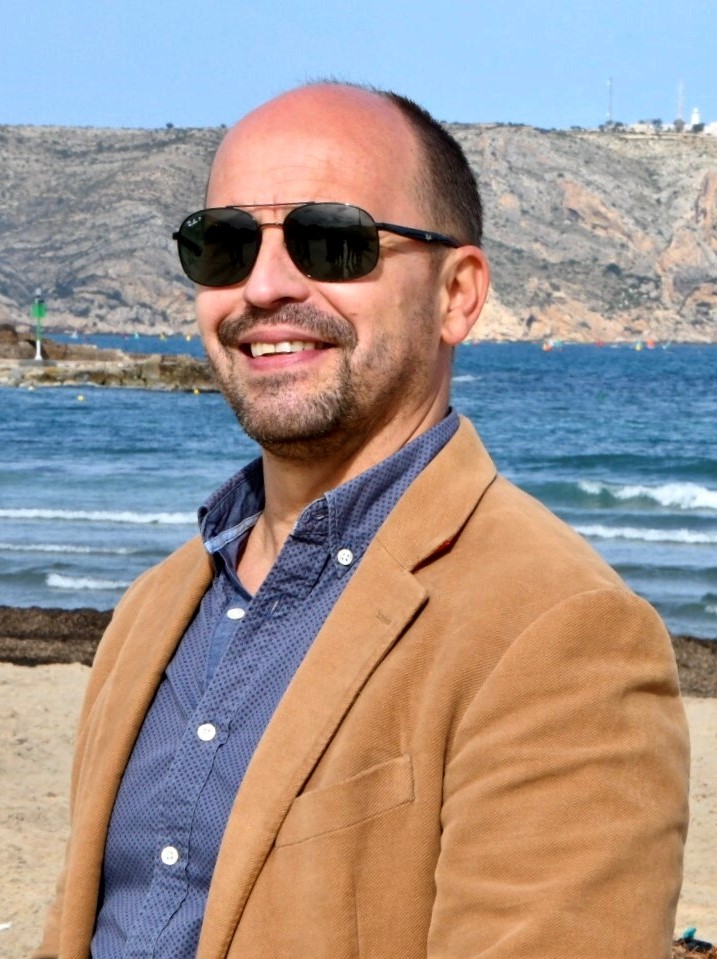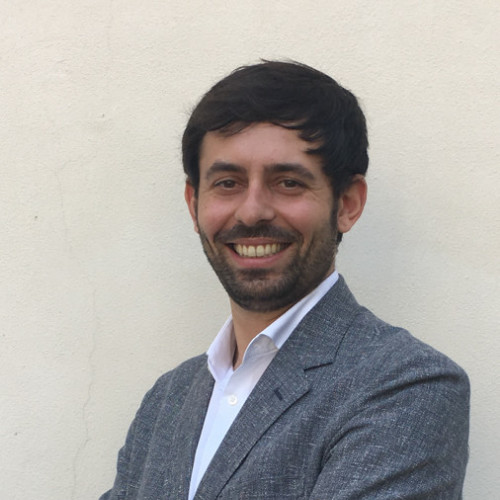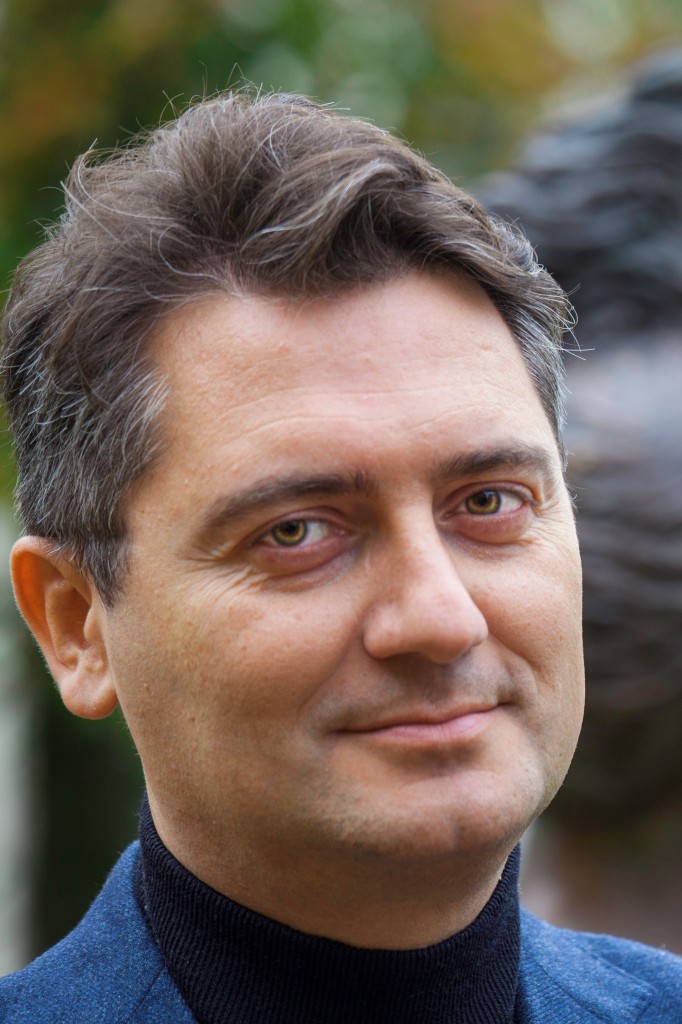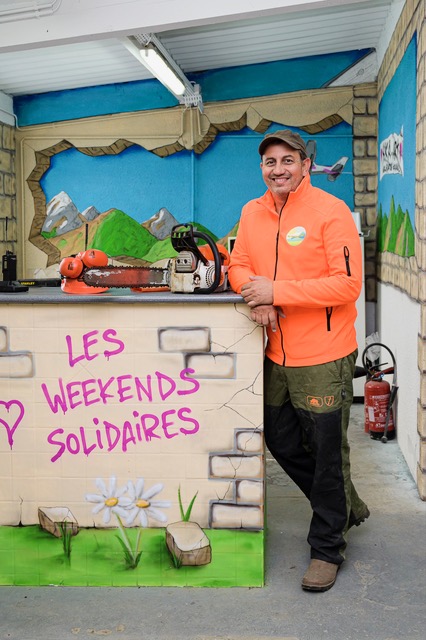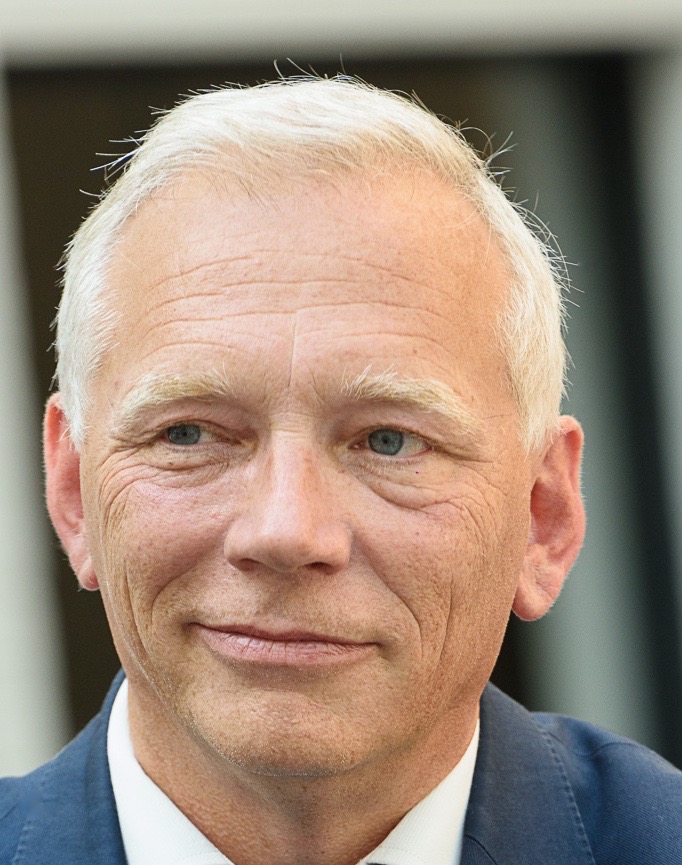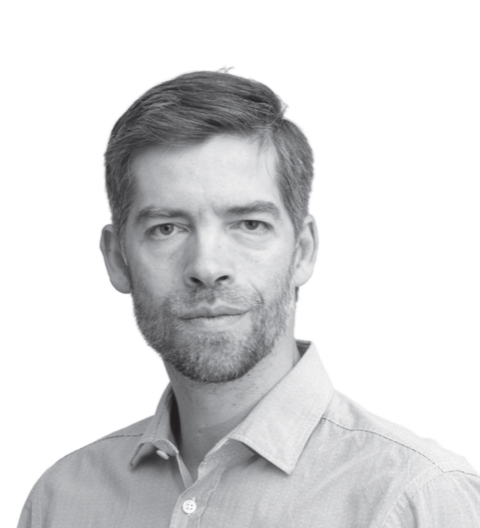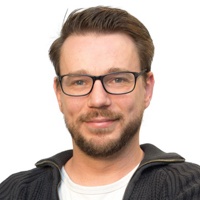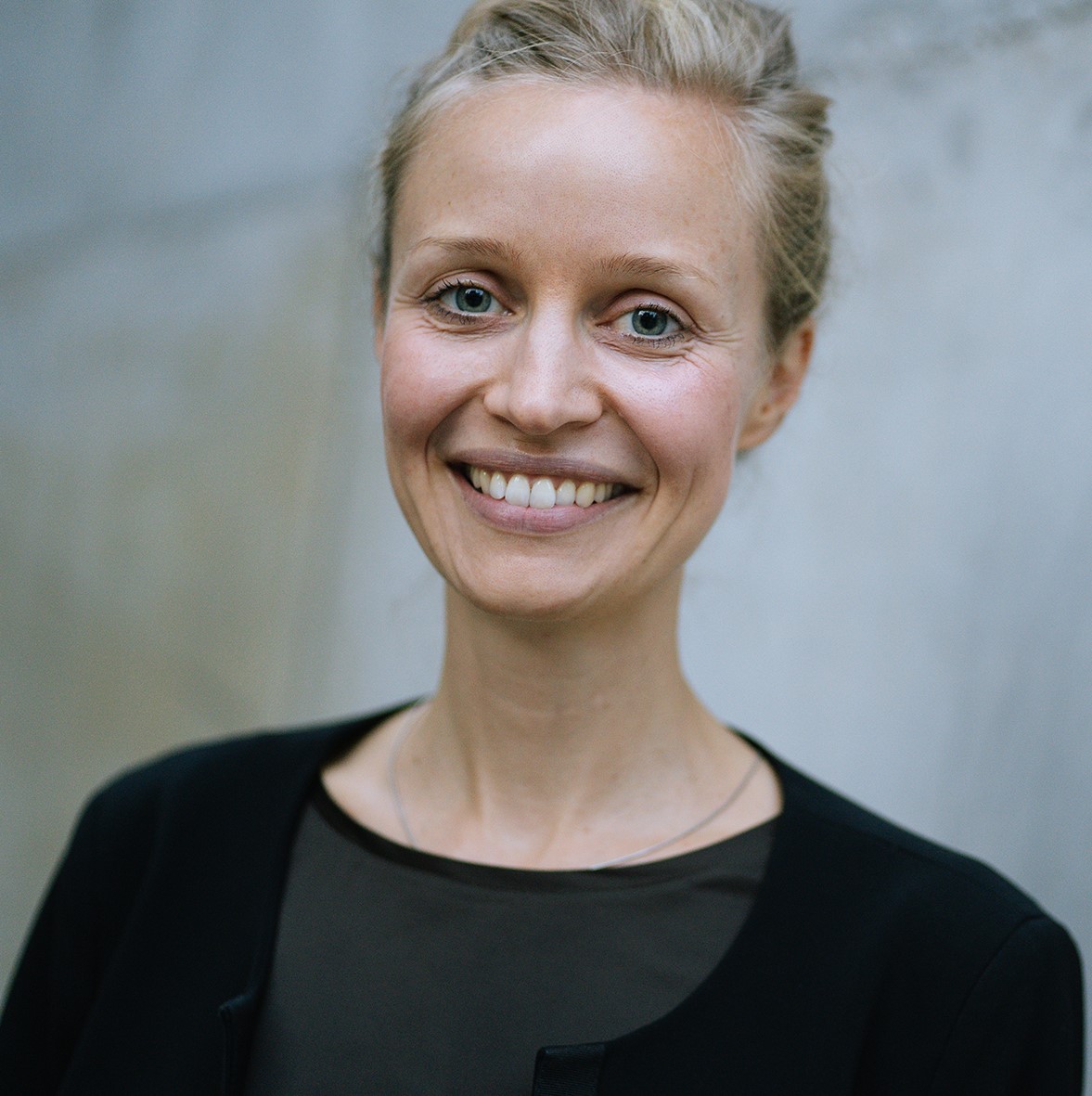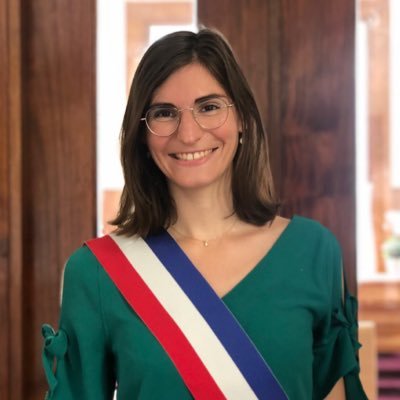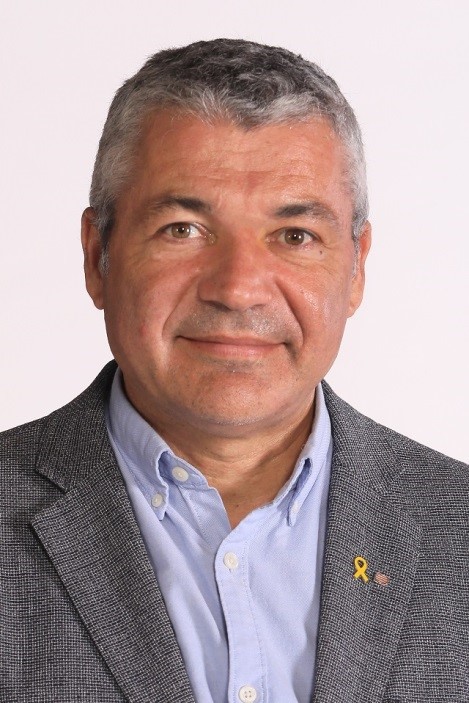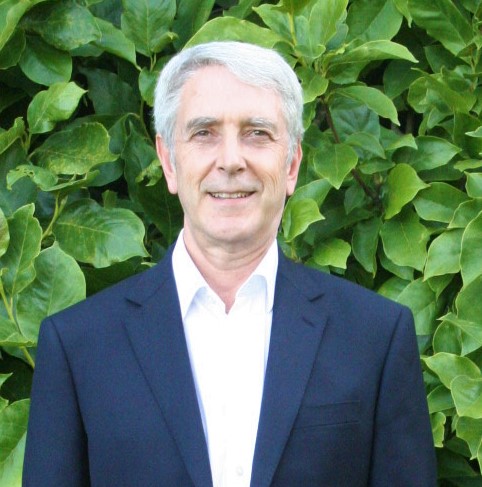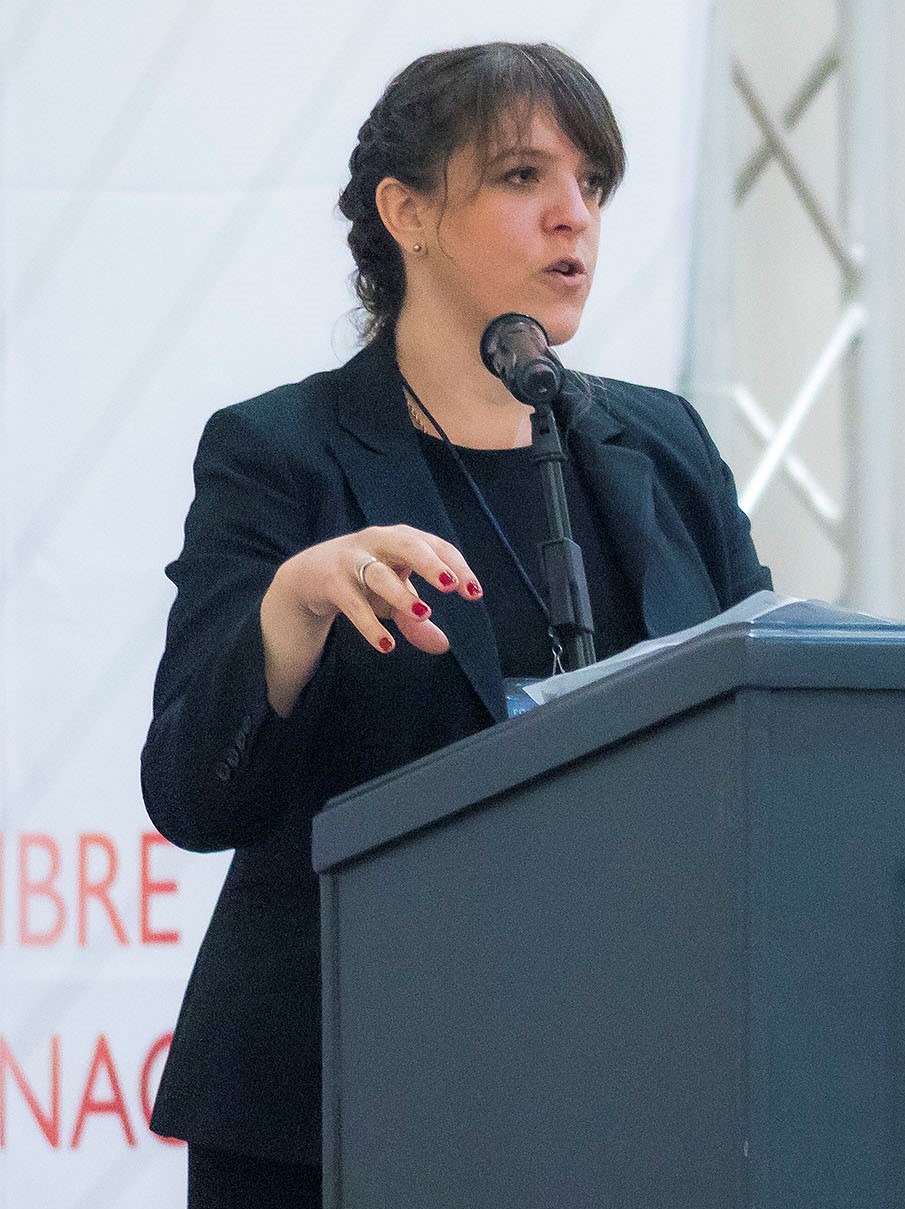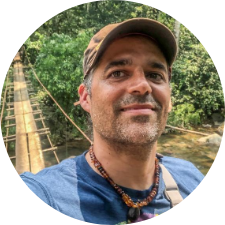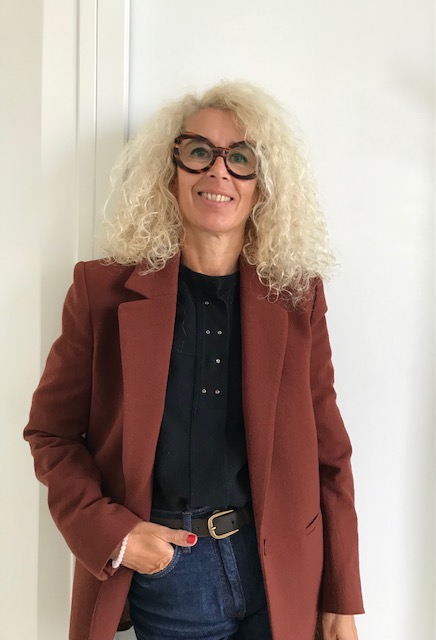SPEAKERS
The panel of speakers will reflect the diversity of actors in security and urban life. It will include: elected officials, local, national and international government officials, academics as well as representatives of civil society and the private sector.
>>> Below is the list of speakers who already sent us their biography. To find out more about their participation in the plenary sessions, workshops and parallel sessions, please consult the programme.
Aaron Landsman Visiting lecturer, Princeton University (United-States) Aaron Landsman is a theater artist, researcher and teacher based in New York City. He is an Abrons Arts Center Social Practice Artist in Residence, a recent Guggenheim Fellow and Princeton Arts Fellow. His performance works have been presented at many venues in New York and other US cities, and in The Netherlands, Norway and Serbia. His arts and advocacy working group Perfect City engages young adults on New York City’s Lower East Side to build creative community conversations on safety, belonging and equity. His book The City We Make Together, co-authored with Mallory Catlett, will be published by the University of Iowa Press in 2022. He teaches Theater and Interdisciplinary Humanities courses at Princeton University. Do you have any specific hopes or predictions for the future of urban security? (What will urban security look like in 30 years? What will be the main opportunities and risks?) In the US, I hope we turn toward models of care rather than punishment, that we de-weaponize practices of protection and move toward community-derived restorative practices whenever appropriate. The main opportunity is to make our society less violent. The main risk is the lack of political will to do that well. Why do you think it is so important to involve citizens in urban security practice? Because if we are truly to have a democratic future for everyone, we have to apply the principles of democracy to our own protective strategies.
Visiting lecturer, Princeton University (United-States)
Ahmed Aboutaleb Mayor of Rotterdam (Netherlands), Vice-President of Efus Ahmed Aboutaleb (born 1961 in Beni Sidel, Morocco) has been Mayor of Rotterdam since 2009. Previously, he represented the PvdA (Labor Party) as State Secretary for the Ministry of Social Affairs and Employment in the fourth Balkenende cabinet (2007-2008) and as an alderman in Amsterdam (2004-2007). At the age of 15, Aboutaleb came to the Netherlands for family reunification. The family resided in The Hague, where Aboutaleb successively attended Junior Technical School, Intermediate Technical School and Technical College, graduating in Telecommunications in 1987. Ahmed Aboutaleb is a poetry enthusiast. 1985 -2007 In the mid-1980s, Aboutaleb started his career in journalism. He was a discussion leader for RVU Television, made programmes for Radio Stad Amsterdam and Radio Noord-Holland, and reported for Veronica Radio, NOS Radio and RTL News. In 1991, he moved to public services, holding positions with the Ministry of Welfare, Health and Culture, the Social and Economic Council of the Netherlands (SER) and Statistics Netherlands (CBS). In 1998 he became an administrator for the Forum institute for multicultural development, and in 2002 he became director of the City of Amsterdam’s sector of Social, Economic and Cultural Development (MEC). Rotterdam Mayor Aboutaleb strongly advocates the values enshrined in the Dutch Constitution: freedom of religion, freedom of speech and the principle of non-discrimination. In his view, obtaining Dutch citizenship entails a responsibility to respect and uphold those values and to take part in building the We Society. The more people take part in it, the stronger and more resilient society will be, both in good and bad times. Aboutaleb regularly strolls around the various neighbourhoods of Rotterdam to chat with residents about what concerns them. In 2015, he published two books: an HJ Schoo Reading (published by Elseviermagazine) titled De roep van de stad ('The City’s Call'), covering the leading role cities and urban regions can play at the national and international level, and Droom & Daad ('Dream & Deed'), which was published for the History Week of the Collective Promotion of the Dutch Book foundation (CPNB). In Droom & Daad, he tells a Rotterdam war story to present how to ensure a stable, peaceful society. Do you have any specific hopes or predictions for the future of urban security? (What will urban security look like in 30 years? What will be the main opportunities and risks?) In our increasingly complex society, which is faced with issues such as subversion, cybercrime and polarisation, people increasingly demand that their municipality manage risks. However, this often enails a high cost, the invasion of privacy and a reduced subjective sense of security. I consider that measures to influence behaviour, social norm and perception are at least as important as limiting the risk of security incidents by police action and camera surveillance. Social participation and inclusion are key for achieving a change of social norm, perception and behaviour. A city that flourishes does so on the basis of the strength and character of its inhabitants.
Mayor of Rotterdam (Netherlands), Vice-President of Efus
Alexander Mauz Executive Board Member, Programs and Qualification, forumZFD (Germany) Alexander Mauz studied international social work and peace studies and works as Executive Board Member for Programmes and Qualification at forumZFD. He is leading international and national programmes on peacebuilding, conflict prevention and non-violent conflict transformation and is a member of various Civil Society Organisation (CSO) networks in Germany. In previous positions he facilitated the cooperation between CSOs and municipalities to set up social services in Eastern Europe and led projects on conflict-sensitive integration of internally displaced persons and refugees in municipalities in the South Caucasus. He believes that sustainable changes are only possible if civil society and local governments work hand in hand.
Executive Board Member, Programs and Qualification, forumZFD (Germany)
Ana Veronica Neves Sociologist and crime prevention expert, Lisbon Municipal Police (Portugal) Sociologist and criminologist. MSc. In Criminology, PhD. in Human Ecology with research on the relationship between space and behaviour in 2 case studies in Lisbon. CPTED trainer and national representative of CEN. Belongs to the city council of Lisbon and works in the Lisbon Municipal Police, implementing community policing projects and implementing crime prevention through environmental design methodology. Do you have any specific hopes or predictions for the future of urban security? (What will urban security look like in 30 years? What will be the main opportunities and risks?) With population density undesired behaviour will increase and crime prevention measure ought to be enforced in a sustainable manner to promote social cohesion, sense of ownership and belonging. Multidisciplinary teams must be implemented to rehabilitate or create new environments. More and more there is a need to focus on social mental health and promote healthy life styles. Why do you think it is so important to involve citizens in urban security practice? Because citizens are the end users and those who can provide sustainability to projects. Working for citizens and with citizens besides creating a feeling of belonging, it also promotes integration, social cohesion and responsibility.
Sociologist and crime prevention expert, Lisbon Municipal Police (Portugal)
Andrea Bosi Deputy in charge of Public Works, Historic centre and legality, City of Modena (Italy) Andrea Bosi became in 2016 Councillor for Participation, Neighbourhoods and Equal Opportunities at the Municipality of Modena, and in 2017 took on the portfolios of Budget, Finance, Europe and International Cooperation, as well Work and Professional training, the Promotion of the culture of legality and the policy for the old town of Modena. Andrea Bosi has a degree in Law from the University of Modena and Reggio Emilia, a Master's degree in Civic Education organized by the Ethica association in collaboration with the James Madison Program of Princeton University (USA) and a PhD from the Doctoral School of Legal Sciences of the Department of Law of the University of Modena and Reggio Emilia.
Deputy in charge of Public Works, Historic centre and legality, City of Modena (Italy)
Angelos Mimis Associate Professor, University of Panteion (Greece) I am an Associate Professor in Geoinformatics and my research interests include spatial analysis, spatial statistics, geocomputational methods and open source software development. I give lectures in Geographic Information Systems and Spatial Analysis at undergraduate and postgraduate level. I am a member of the Laboratory of Criminology of the Panteion University of Athens, which is directed by Professor Christina Zarafonitou, a leading scientist in the field of urban security. The Laboratory of Criminology covers teaching and research needs in the area of Urban Criminology. The activities of the laboratory include the organisation of seminars, scientific events, the participation in research projects and scientific editions and the publication of the scientific journal Urban Crime. An International Journal. Do you have any specific hopes or predictions for the future of urban security? (What will urban security look like in 30 years? What will be the main opportunities and risks?) Urban security in the future will probably be based more on new technological means and tools especially in the field of tackling modern forms of criminal threats. Technology inevitably will also affect crime prevention in various ways. However, its valuable contribution to the field of crime prevention should not be limited to the simplistic solution of monitoring but rather it should be focused on improving citizens’ information, daily life and of course safety. Moreover, the utilisation of the large citizen capital in both fighting crime and creating safer neighbourhoods and the success of the participatory crime prevention policy are important opportunities and a future bet for urban security policy experts. A guiding light in this effort should be, once again, the respect of human rights, bearing in mind that ‘over-active’ citizenship in the field of crime prevention and urban security could be highly problematic. Against this backdrop, the protection of human rights and individual liberties must be central for security policy experts and achieving a balance between crime prevention and protection of human rights must be a top priority for the future. Why do you think it is so important to involve citizens in urban security practice? The participatory model of crime prevention is based on the notion that the responses to crime should be a social body affair and not only a State affair. In this context, the concept of community is implemented through the development of partnerships and the participation of the public on the basis of volunteering. The implementation of such policies at the local level is of great importance because it facilitates the detection of social problems as well as the prerequisites for the development of social solidarity and social cohesion and because social problems can effectively be solved at the local level. Thus, the social capital is considered as a crucial contributing factor for the success of the policies for the quality of life while the feeling of safety constitutes a focal point of all the above-mentioned policies that fall within the approach of the broader participatory model. Generally, citizens’ participation in crime prevention programmes or actions can contribute to the democratisation of local life since citizens’ engagement in public affairs constitutes a fundamental prerequisite for democracy, provided that such a participation is well organised and appropriately coordinated.
Associate Professor, University of Panteion (Greece)
Àngels Vila Muntal Director of the Crime Prevention Department, City of Barcelona (Spain) Mrs. Àngels Vila is the Director of Prevention Services at the Barcelona City Council since 2020. Previously, she has held different positions and responsibilities in the Department of the Interior in the Government of Catalonia and has also practiced as a criminal lawyer. Graduated in Law, Graduated in English Studies, Master in Criminal Law and Public Management. She has published articles and has taught on topics related to security, Criminal Law and data protection and privacy. Do you have any specific hopes or predictions for the future of urban security? (What will urban security look like in 30 years? What will be the main opportunities and risks?) Urban Security will be very different from what we know now. To mention some of the changes that I think that we are going to experience - some of which we are already beginning to experience - I want to highlight some aspects of our Urban Security in a future 30 years ahead. First, all actors that work on Urban Security will take into account the uniqueness of the population for which we work. The detail, the specific need, the person, will be important, they will be in the centre. Historically, and still happens today, security is defined and understood as opposed to the existence of crime. In many cases, all the effort are for the moment of reaction, and sometimes in the moment of prevention but from a very operational perspective. This is going to change. Preventive policies are going to emerge with more force than ever, Urban Security cannot answer all the problems that citizens present. Because, why is it that often when crime drops people see their perception of insecurity increase? Because many times their problems are not related to public safety, but rather they are related to other areas that the police cannot answer by themselves. Second, Urban Security will be more equitable, more democratic, security policies will be implemented taking into account diversity, gender, and the needs of specific groups. But without this being an exception, taking these perspectives into account will be the most absolute normality. It will not be a general policy of security for everybody. Finally, it will be a security that will not be exclusively in the hands of the police or the public powers with security powers. Organized citizens will influence security policies and also will carry out or contribute to the implementation of these policies. Civil society will have greater control capacity, which will force organizations to exercise better communication and transparency policies. The police alone cannot respond to all security problems; therefore it will count on civil society to help them respond to problems and needs that arise. A relationship of mutual trust should be established. Why do you think it is so important to involve citizens in urban security practice? Because we must always bear in mind that Urban Security is nothing more than a public service. It is not something we make in a laboratory for research proposals. It is a job, a responsibility, that we carry out to guarantee that people can live in freedom, in conditions of maximum security, with dignity, without fear, without discrimination, etc. We need to listen to people, what are their needs, concerns and priorities. We also need them to know what ours are. And what are resources. And together we have to put the pieces of the puzzle together. If we carry out this process separately, we are doomed to fail.
Director of the Crime Prevention Department, City of Barcelona (Spain)
Anniina Autero Senior Project Manager, City of Tampere (Finland) Anniina Autero (PhD) is currently leading the SURE project (smart urban security and event resilience) in the city of Tampere (Finland), with nine different partners from public and private sector organizations and academia. SURE aims for safe and secure urban event areas. Anniina has vast experience in safety and security solutions. She has studied and taught safety, security and public economy for more than 15 years at Tampere University, Stanford University and the University of Colorado Denver. She has led the Safety and Security cluster in Tampere and is one of the initiators of the European ENSURE Collaborative. Anniina is enthusiastic about bringing people back together by building seamless interplay of safety, security and atmosphere at urban events.
Senior Project Manager, City of Tampere (Finland)
Anthony Borré First Deputy Mayor, City of Nice (France) Anthony Borré was born on the 16th May 1985 in Montreuil and is the First Deputy Mayor of Nice, in charge of security, housing, urban renovation and city policy. He is also Vice-President of the Nice Côte d’Azur Métropole and President of the first social landlord in Alpes-Maritimes: Côte d’Azur Habitat. A long-time collaborator with Christian Estrosi, with whom he has worked in l’Assemblée Nationale and the Ministry of Industry, he later became his Director of Cabinet for the Metropole from 2011 to 2020. Anthony Borré, who has a masters in public law and a second masters in strategy and public and political policy, was nominated for ‘100 young economic leaders of the future’ by l’Institut Choiseul. At 24, he was the youngest member of Fillon’s government.
First Deputy Mayor, City of Nice (France)
Director, Fixed Africa (South Africa)
Benedek Javor Head of the Representation of Budapest at the EU (Hungary) Benedek Javor is the Head of the Representation of Budapest in Brussels. His role is to strengthen the relationship between the City of Budapest and the EU institutions, to lobby and represent city interests throughout the EU’s decision-making bodies, co-operating with EU level urban associations/umbrella organisations, and to map out EU funding opportunities for urban projects, with a specific attention to climate action. Benedek Javor also works on horizontal networks and relations with other European cities. He was Member of the European Parliament (2014-2019) and Member of the Parliament of Hungary (2010-2014). Do you have any specific hopes or predictions for the future of urban security? (What will urban security look like in 30 years? What will be the main opportunities and risks?) Climate change is an increasingly crucial issue that has ramifications in each and every aspect of our social and economic functions. Although its effects on and links with urban security are increasingly obvious, there are still few public discussions on that issue. Heat waves, storms, floods, forest and bush fires, and climate migration are all set to become daily challenges for urban security. My aim is to intensify the public discourse on the interlinked issues of climate and urban security, and to build up a complex framing that encompasses climate, social justice, economic, democratic and urban security issues instead of the silo approach we generally have nowadays. Why do you think it is so important to involve citizens in urban security practice? Climate change and security threats both influence citizens’ daily life, and efficient, feasible solutions can be developed and applied only with their active participation and deep understanding of the reasons such measures.
Head of the Representation of Budapest at the EU (Hungary)
Caroline Davey Director, Design against Crime Solution Center, University of Manchester (United Kingdom) For the past 18 years, Professor Caroline L. Davey has led research into the role of design in tackling crime, insecurity and other societal challenges. Caroline has published widely on the use of human-centred design to address issues related to social responsibility. Design Against Crime: A human-centred approach to safety and security outlines the development of Design Against Crime in the UK, and its wider impact on research, practice and policy across Europe. In 2018, Caroline secured over €3m research funding from the EU for the Cutting Crime Impact (CCI) research project. This is helping police forces across Europe design innovative ways to fight crime — including the Dutch and Estonian national police forces, Lisbon Police, German police in Lower Saxony and the police of Catalonia in Spain.
Director, Design against Crime Solution Center, University of Manchester (United Kingdom)
Charles Nagy Representative of Espoir 18, City of Paris (France) Né en 1998 à Paris, Charles a grandi dans le 18e arrondissement de Paris. Titulaire d’un CAP en hôtellerie restauration et d’un BAC+2 Animation radio, il est journaliste associatif pour NogoTV, en service civique pour l’association Espoir18. Il collabore depuis huit ans aux activités de cette association et ambitionne de devenir grand reporter. Un souhait pour la sécurité urbaine ? (Quelle est votre vision de la sécurité urbaine dans 30 ans ? Quels espoirs et risques identifiez-vous ?) Un rapport police-population apaisée, une prise en compte des acteurs de 1ère ligne : habitants, acteurs associatifs... Pourquoi est-il important d’associer les citoyens à la production des politiques ? Nous sommes des « experts d’usage ». Il est primordial de nous associer et d’avoir une approche bottom-up plutôt que descendante.
Representative of Espoir 18, City of Paris (France)
Christian Estrosi Mayor of Nice, President of the Nice Metropole, Deputy President of the Provence Alpes-Côte d’Azur Region (France), Vice-President of Efus In 1983, Christian Estrosi was elected Municipal Councillor of Nice, in charge of the delegation of sports. In 1985, he was elected General Councillor of Alpes-Maritimes. In 1988, he was elected Deputy of the 5th district of Alpes-Maritimes. After this initial stage of his career, in 1992 Christian Estrosi became the first Vice-President of the Provence-Alpes-Côte d’Azur (PACA) Regional Council, serving Jean-Claude Gaudin. Re-elected as member of parliament in 1993 and 1997, he was also elected General Councillor of the district of Saint-Etienne-de-Tinée, gaining more than 80% of the vote. On 2 June 2005, Christian Estrosi became a member of the government of Dominique de Villepin as Deputy Minister of Territorial Planning, under the Minister of the Interior, Nicolas Sarkozy. After the election of Nicolas Sarkozy as President of France, Christian Estrosi was re-elected Deputy of the 5th district of Alpes-Maritimes, and, on 19 June 2007, was named State Secretary in charge of overseas territories by the Presidency. On 18 March 2008, he resigned his duties as State Secretary in charge of overseas territories to focus on Nice and its citizens. He was elected mayor of Nice on 21 March 2008, President of Côte d’Azur on 18 April and member of parliament on 26 May 2008. From June 2009 to November 2010, he took on a new mission by joining the government of François Fillon as Minister of Industry to the Minister of Economy, Industry and Employment. On 14 December 2010, Christian Estrosi returned to the National Assembly as MP for the Alpes Maritimes constituency, while still Mayor of Nice and President of Nice Côte d’Azur. On 9 January 2012, he became the President of Nice Côte d’Azur Metropole, the first ‘métropole’ established in France. On 30 March 2014, he was re-elected Mayor of Nice, and on 11 April 2014, President of te Nice Côte d’Azur Metropole. He also became the first Vice-President of the Association of Urban Communities in France (ACUF according to the French acronym). On the 18 December 2015, he was elected President of the Provence-Alpes-Côte d’Azur Region. At the beginning of 2016, he became the second Vice-President of the French Urban Association (a fusion of ACYF and AMGVF). On 8 May 2017, Christian Estrosi resigned as President of the Provence-Alpes-Côte d’Azur Region, and was re-elected as Mayor of Nice on 15 May 2017 in order to focus on Nice and its citizens following the attack on 14 July 2016. Toutefois, Christian Estrosi reste très impliqué dans l’exécutif régional, en étant élu Président délégué de la Région Provence-Alpes-Côte d’Azur en charge de la coordination des politiques régionales, de la culture et des grands événements. However, Christian Estrosi remains very involved in regional executive matters as Deputy President of the Provence-Alpes-Côte d’Azur Region, where he in charge of the coordination of regional policies, culture and large events. On 3 July 2020, he was re- elected for the third time in Nice and on 10 July elected as President of Nice Côte d’Azur Metropole.
Mayor of Nice, President of the Nice Metropole, Deputy President of the Provence Alpes-Côte d’Azur Region (France), Vice-President of Efus
Christian Kromberg First Deputy Mayor, City of Essen, President of the German Forum for Urban Security (DEFUS) (Germany) Christian Kromberg is Chief Administrative Officer (CAO) of the City of Essen and is responsible for the areas of Law and Public security. He is the Chairman of the German European Forum for Urban Security (DEFUS) and a member of the Executive Committee of the European Forum for Urban Security (Efus). He studied Law at the Ruhr University in Bochum (1st state examination) and security management at the Berlin School of Economics and Law (MA). He completed his legal clerkship at the Essen District Court (2nd state examination). Concerning the area of public security, he is a member of the discussion group “Internal Security NRW”. He also has been a member of the governmental commission “More Security for North Rhine-Westphalia”.
First Deputy Mayor, City of Essen, President of the German Forum for Urban Security (DEFUS) (Germany)
Christian Specht Vice-Mayor of Mannheim (Germany), Vice-President of Efus Christian Specht has been Deputy Mayor of the City of Mannheim since 2005 and First Deputy Mayor since 2007. He is responsible for Finance, Investment Asset Management, IT, Public Safety and Order. He is a member of the supervisory board of the energy company MVV Energie AG and chairman of the supervisory board of the public transport alliance Rhein-Neckar-Verkehr GmbH. A qualified lawyer, he is chairman of the finance committee of the Baden-Württemberg Association of Cities and Deputy Chairman of the finance committee of the German Association of Cities. Specht is Vice-President of the European Forum for Urban Security (EFUS) and of the German European Forum for Urban Security (DEFUS) as well as Chair of the SiMA Association for Security in Mannheim. Do you have any specific hopes or predictions for the future of urban security? (What will urban security look like in 30 years? What will be the main opportunities and risks?) Urban security should not only be considered at the local level. We already notice today that international conflicts are increasingly manifesting themselves at the local level and that they have a direct impact on what happens within our cities. International city diplomacy and cross-border cooperation therefore play a crucial role. International networks such as Efus offer an important platform for international cooperation. We need to work even more together to strengthen the security in our cities. Why do you think it is so important to involve citizens in urban security practice? Municipal security is also based on whether citizens, commuters and visitors feel safe in the municipal environment. The feeling of security is determined on the one hand by the official crime statistics of the police, but it is significantly influenced by the citizens' subjective sense of security. A very important objective, which concerns all municipal policy areas and not only the field of security, is to see citizens evolve from being ‘affected’ to being ‘involved’. Indeed, they must be actively involved in decision-making and participation processes and the measures that are discussed must be implemented and communicated as a product of citizen participation. This will make citizens feel they are part of a strong community.
Vice-Mayor of Mannheim (Germany), Vice-President of Efus
Cristina Vasilescu Researcher, Institute for Social Research (IRS), Member of the European Forum for Restorative Justice Cristina Vasilescu is a senior researcher with over 14 years of expertise in social research, public policy analysis and evaluation, training for public administrations and EU project design and management. She has gained extensive experience in the following fields: participatory processes and social accountability in public administrations; performance management and evaluation of public institutions; justice policies and organisation of judicial offices; social inclusion and gender equality; sustainable development and EU Cohesion policy. In the last three years, she has been involved in the evaluation of the COnTatto project aimed at disseminating restorative justice and building restorative communities in the province of Como (Italy). She is a member of the Italian Evaluation Association and of the European Forum for Restorative Justice. She participates in the working group on Restorative Cities. Do you have any specific hopes or predictions for the future of urban security? (What will urban security look like in 30 years? What will be the main opportunities and risks?) I hope that urban security policies are not read only in terms of punitive approaches and, hence, provide answers that integrate different types of policies (e.g. education, social inclusion, culture and sport, urban planning, restorative justice, environmental justice). Why do you think it is so important to involve citizens in urban security practice? Citizens can contribute to the policymaking process with their knowledge on the local context and issues at stake in urban security as well as with their collective memory of the past. Engagement allows citizens to: become aware of the various aspects and complexities of the policymaking process; to take over part of the responsibility for dealing with urban security issues in their neighbourhoods/cities; to be more prone to collaborate, rather than oppose, with local authorities to ensure urban security. However, in order to be effective participation has to be meaningful and the participatory process has to take into consideration power asymmetries in the area where participation takes place.
Researcher, Institute for Social Research (IRS), Member of the European Forum for Restorative Justice
Denis Tallédec Director of the Culture Barbars Collective and Coordinator of the Nightlife Platform, Elected official, city of Nantes and to Nantes Métropole (France) Denis Tallédec has specialised in the contemporary music sector for more than twenty years. He has been able to appreciate this sector in various ways: as administrator of contemporary music structures, Head of the information services sector and a regional mission at Trempolino, Chief of the resource network at the branch of Printemps de Bourges, Director of the Regional Pole for Contemporary Music in the Pays de la Loire, free-party mediator for the Region Prefect, and so on. During the latter role, he accompanied public authorities in their spatial planning policies. He is now Director of Culture Bar-Bars, the national federation for cultural cafes and clubs, and coordinator of the Plateforme de la vie nocturne. Alongside this, he is also an elected official of the city of Nantes and Nantes Metropole, in charge of public security and crime prevention.
Director of the Culture Barbars Collective and Coordinator of the Nightlife Platform, Elected official, city of Nantes and to Nantes Métropole (France)
Dr Oskar Josef Gstrein Assistant professor, University of Groningen (Netherlands) Dr Oskar Josef Gstrein, MA, LLM is an Assistant Professor at Campus Fryslân - University of Groningen, where he is also a member of the interdisciplinary Data Research Centre. His general research theme is ‘Human Dignity in the Digital Age’, which he addresses from legal and philosophical perspectives. His publications cover the topics of Internet Governance, the governance of emerging technologies, privacy, surveillance, (cyber)security and digital identity. Oskar is a Research Associate at the Israel Public Policy Institute and Research Fellow at the Institute for Technology and Society of Rio de Janeiro. He is also an External Lecturer at the Europa-Institut of the University of Saarland in Germany. > Do you have any specific hopes or predictions for the future of urban security? (What will urban security look like in 30 years? What will be the main opportunities and risks?) Digital transformation reshapes societal interaction and I think this will also heavily affect the area of urban security. One of the burning questions is how increased connectivity affects the division between private and public space, and whether individual autonomy will gradually be sacrificed for an ideal of security that is impossible to achieve. > Why do you think it is so important to involve citizens in urban security practice? In the end most people appreciate an open and shared environment that is vibrant and peaceful. Therefore, it is up to everyone to participate in a constructive way, also when it comes to security. Everyone has to play their part and technology has to be designed in a way that enables this interaction in a constructive way. However, most technological systems deployed today (e.g. for surveillance) do not follow such a holistic (or ‘human-centred’) approach and leave important legal (human rights) and societal aspects aside.
Assistant professor, University of Groningen (Netherlands)
Dr. Anke Schröder Centre of Competence of Urban Security in the Criminological Research (KFS), State Office for Criminal Investigations (LKA), Lower Saxony (Germany) Dr. Anke Schröder is an architectural sociologist responsible for the Centre of Competence of Urban Security in the Criminological Research (KFS) at the State Office for Criminal Investigation of Lower Saxony. She is involved in several international and national research projects in the field of crime prevention in urban design and planning. Furthermore, she is a member of the DIN standardization committee of Crime Prevention in Urban Planning.
Centre of Competence of Urban Security in the Criminological Research (KFS), State Office for Criminal Investigations (LKA), Lower Saxony (Germany)
Fabien Bilheran Police officer, Law Enforcement Action Partnership (LEAP) Europe (France) Fabien spent 8 years of his law enforcement career participating in the "fight against drug trafficking" in France. He is the actor and privileged witnesses of the prohibition policy implemented in the respective countries and on the European continent.
Police officer, Law Enforcement Action Partnership (LEAP) Europe (France)
Felix Munger Executive Director, Municipal Canadian Network for Crime Prevention (Canada) Originally trained as a mental health nurse, Felix Munger brings experience as a clinician, planner, and evaluator of mental health and addiction services. He is an expert facilitator with over 20 years of experience facilitating strategic planning, priority setting, and collaboration building across Canada with a wide range of stakeholders including racialized and Indigenous communities. In his numerous leadership roles, he has worked in mental health, addiction, EDI (equity, diversity, inclusion), and organizational collaboration and development. He holds a diploma in psychiatric nursing, a MA in Environmental Studies, and a PhD in Community Psychology. He regularly teaches at Laurier University (Ontario) in the departments of psychology and health sciences. Since 2015, Felix Munger has been leading the Canadian Municipal Network on Crime Prevention. He is also a Research Fellow at the Viessmann Centre for Engagement and Research in Sustainability at Laurier University where his work focuses on the intersection of climate change and community safety. Do you have any specific hopes or predictions for the future of urban security? (What will urban security look like in 30 years? What will be the main opportunities and risks?) Main risks are increased inequities within and across countries and climate change hazards. Closer attention needs to be paid to the nexus of climate change and community / public safety. Why do you think it is so important to involve citizens in urban security practice? Citizens are core to the ongoing sustainability of urban safety practice. Without citizens, plans and efforts can become empty attempts and plans. Citizens also play a role in making elected officials and governments accountable with regards to implementation.
Executive Director, Municipal Canadian Network for Crime Prevention (Canada)
Fernando Gaona Deputy Headquarters & Security Advisor, Municipal Police, Xabia (Spain) European Projects Coordinator, Securirty Advisor Supervisor & Terrorism Analyst Expert Do you have any specific hopes or predictions for the future of urban security? (What will urban security look like in 30 years? What will be the main opportunities and risks?) The urban security of the future must be observed from a global point of view, taking into account the new technological requirements and the new emerging threats. The society of the future will be diverse and changing faced with these new situations and the public spaces that are shared must be designed based on all these changes, prediction and prevention will be key to achieve these objectives. Why do you think it is so important to involve citizens in urban security practice? Centuries ago cities or urban settlements were built based on preventing external threats, today we must design cities thinking about threats from the inside to the outside.
Deputy Headquarters & Security Advisor, Municipal Police, Xabia (Spain)
Francesc Guillén Lasierra Head of Projects and Organisation, Government of Catalonia (Spain) Francesc Guillén is Head of Projects and Organisation at the Department of the Interior of the Government of Catalonia. Francesc is a jurist, a criminologist and a specialist in public security policies. He did a PhD on security and police models and has long been a university lecturer on constitutional law and criminology (1989-2019). He participated in several CoE missions in Eastern Europe on police matters and in several Efus-led projects (Audits, Surveille, Eurosocial). He contributed to several publications: Modelos de policía: hacia un modelo de seguridad plural (‘policing models: towards a plural security model’), Desencuentros entre la policía y el público (‘disagreements between the police and the public’), The fallacy of objective security.
Head of Projects and Organisation, Government of Catalonia (Spain)
Giacomo Bianchi Project Manager, European Security Organisation (Belgium) With a background in International Relations and European Studies, a post grad Diploma in Intelligence and Security and one in Public Affairs, Giacomo started working for a United Nations Agency in Milan on e-agriculture, climate change and new technologies Policies and Projects. After three years of experience in State Street and Goldman Sachs, where he was working on EU Regulations and Directives, Giacomo worked at the European Environmental Bureau in Brussels, focusing on H2020 Projects with particular attention to the European Green Deal. At EOS, he is working as Project Officer on H2020 Projects regarding Cybersecurity, Artificial Intelligence, Border Security, Research and Innovation. Do you have any specific hopes or predictions for the future of urban security? (What will urban security look like in 30 years? What will be the main opportunities and risks?) In the next 30 years we will face two different realities: from one side Artificial Intelligence and Digitalisation will have an increasingly decisive role in how the concept of city will be planned and thought. On the other hand, the negative aspects will be a return of ever deeper social and class divisions and the eternal centre-periphery struggle. Why do you think it is so important to involve citizens in urban security practice? Looking at the trends of recent years, we can perfectly understand how part of the population is moving more and more from the “countryside” to the big cities, and we can easily predict the same for the next 30 years. Citizens were, are and will be the main actors of urban security. Raising awarenees in few practices such us promoting social cohesion, leisure via internet, encouraging the use of public space can be considered more important than ever.
Project Manager, European Security Organisation (Belgium)
Gian Guido Nobili Head of the Department of Urban Security and Crime Prevention, Emilia Romagna Region, Director, Italian Forum for Urban Security (FISU) (Italy) Gian Guido Nobili is Head of the Urban Security and Crime Prevention Unit of the Emilia-Romagna Region (Italy). He oversees research programmes, projects and data systems concerning crime, victimisation, juvenile delinquency, organised crime, urban security and crime prevention. Since 2013, Gian Guido has been National Coordinator of the Italian Forum for Urban Security. Since 2006, he has been a member of the European Society of Criminology (ESC) and a founding member of the European Governance of Public Safety Network. He is author or co-author of books and more than 50 articles in Italian and international journals and has edited books on topics such as the evaluation of crime reduction programmes, policing, organised crime, urban security and research on new crime prevention strategies. Do you have any specific hopes or predictions for the future of urban security? (What will urban security look like in 30 years? What will be the main opportunities and risks?) I hope that urban security will become increasingly linked with other policy areas. Even though the final objectives of the different policy areas can vary greatly, all these domains have significant influence, for better or for worse, on the overall level of safety within the local community. Gender policy has an important role to play because only a profound change in culture and relations between the genders can reduce the routine and widespread violence that marks relations between men and women. Education policy is also important, particularly in the area of compulsory schooling where the processes of socialisation, integration and appreciation of shared rules, the fundamental building blocks to acquire a shared idea of legality, are all learned. Policies designed to qualify the local area to ensure optimum management of urban transformation processes, which can have a direct impact on levels of conflict in public spaces, also have an important part to play. Policy implemented to assist the reception given to and the integration of immigrant populations is vital for the contribution to social harmony between different cultures and lifestyles. Last but not least, social policies aimed at supporting and integrating those areas at the margins of the community are relevant as well. We must focus our attention not only on street crime, incivilities and feelings of insecurity, but also on the prevention of organised crime. It operates at the urban level in such a way that the general public and local institutions are largely unaware of its activities. Yet, the destructive potential of organised crime is far more widespread than that of more common types of criminality. Why do you think it is so important to involve citizens in urban security practice? Urban security practices have to encourage local sociability and citizen involvement. Not only because they are essential to foster spontaneous surveillance, but also because considering and sustaining existing social ties contribute to preventing the exclusion of incoming groups, which can fuel conflicts.
Head of the Department of Urban Security and Crime Prevention, Emilia Romagna Region, Director, Italian Forum for Urban Security (FISU) (Italy)
Gil Marsalla General Director, Director Productions, Les Weekends Solidaires, Nice (France) Les Weekends Solidaires is an association born out of Storm Alex (1st-2nd October 2020). It’s role is to bring support to victims in the Roya, Tinée and Vésubie Valleys, organising mutual aid between volunteers and victims. Over 1 year, more than 80 support sites were led by volunteers from the association, creating 20,000 hours of volunteer work. The association brings together more than 1500 operational volunteers who are trained to provide aid in the field for victims in the case of a catastrophe. We have created a community of solidarity and fraternity. Do you have any specific hopes or predictions for the future of urban security? (What will urban security look like in 30 years? What will be the main opportunities and risks? The creation of a solidarity watch for each department and region, bringing together volunteers who can intervene quickly alongside local authorities who, it is important to remember, can not intervene on private property in order to help victims. Why do you think it is so important to involve citizens in urban security practice? Because we are in direct contact with the field, we know victims’ situations perfectly well, and we can report the most difficult situations to authorities. We also offer aid which is not just material but physical, moral and psychological too.
General Director, Director Productions, Les Weekends Solidaires, Nice (France)
Gilles Mahieu Governor of Walloon Brabant, Province of Walloon Brabant (Belgium) Born in Uccle in 1964, Gilles Mahieu has been Governor of the Brabant Wallon Province (Belgium) since 1 October 2015. Holding a degree in Criminological Sciences from l’Université libre de Bruxelles, he has been, amongst other positions, General Secretary of the Socialist Party (2008 to 2015), Chief of Staff of Fadila Laanan, Minister for Culture and the Audiovisual (2004 to 2008), Deputy Chief of Staff of Charles Picqué, Commissioner and then Minister in charge of Policies in Large Cities (1995 to 1999) and Director of the Security Contract for the City of Mons (1993 to 1994). An Honorary Reserve Officer, he was administrator for various societies and organisations, including the King Baudouin Foundation, the National Lottery SA, the Mons Foundation 2015, the Wallonia Regional Society for Investment (SRIW), the Star’t SA Investment Fund, and also associations that are active in the fields of prevention and culture. His fields of predilection are federal, regional and local policies, questions of security and prevention, crisis management, urban policies, local development, territorial marketing, cultural, audiovisual and media policies, international and European policies, social, addiction and citizen participation policies, as well as youth-aid, communication, creation and management of projects and public-private partnerships. He lives in Baulers (Nivelles) and is the father of two children. Do you have any specific hopes or predictions for the future of urban security? (What will urban security look like in 30 years? What will be the main opportunities and risks?) Fear of polarisation, divisions in society and the phenomenon of radicalisation. The challenge of social cohesion in the contexts of globalisation, disorder and shortages. The loss of human and material resources for the State’s regalian departments. On the other hand, the useful impact of new solutions surrounding artificial intelligence (AI), the Internet of Things (IOT), big data and monitoring technologies. Why do you think it is so important to involve citizens in urban security practice? Both to ensure the success of policies (which work best when we adhere to them) and to safeguard against the risk of totalitarianism and autocracy. To guarantee that security offered corresponds to needs. As a matter of saving resources (in the noble sense of the term).
Governor of Walloon Brabant, Province of Walloon Brabant (Belgium)
Götz Nordbruch Co-founder and Co-executive director, Ufuq.de (Germany) Dr Götz Nordbruch is a social scientist and co-founder of ufuq.de, a Berlin-based NGO specialised in civic education and prevention programmes. Nordbruch served as a research associate at the Institut de recherches et d’études sur le monde arabe et musulman (research institute on the Arab and Muslim world) in Aix-en-Provence and at the Georg-Eckert-Institut – Leibniz-Institut – for international textbook research in Braunschweig. From 2008 to 2011, he served as an assistant professor at the Centre for Contemporary Middle East Studies at the University of Southern Denmark. His work focuses on youth cultures, racism, and Islamism, as well as the prevention of radicalisation in education and youth work. Until March 2020, Nordbruch served as co-head of the national umbrella organisation Bundesarbeitsgemeinschaft religiös begründeter Extremismus (‘federal working group on religion-based extremism’).
Co-founder and Co-executive director, Ufuq.de (Germany)
Hans Bonte Mayor of Vilvoorde (Belgium) Mayor of Vilvoorde since 2012, Hans Bonte started his career as a street and youth worker in Brussels. He holds a Masters in Sociology from the University of Ghent and a Masters in Politics from the University of Brussels. He has been a member of the Belgian Parliament for 24 years (1995-2019), and is a member of the Vilvoorde City Council since 2001. He has participated in several national and international conferences on radicalisation and terrorism. Do you have any specific hopes or predictions for the future of urban security? (What will urban security look like in 30 years? What will be the main opportunities and risks?) The biggest risk is that social control will be completely replaced by technological control.
Mayor of Vilvoorde (Belgium)
Hans Crab Head of Unit - Partnerships and Projects, Brussels Prevention Security (BPS) (Belgium) Hans Crab is Head of the Partnerships & Projects unit of Brussels Prevention & Security, the public interest body established following the sixth Belgian State Reform, which has given the Brussels-Capital Region a new remit regarding the coordination of prevention and security policies in the Brussels Metropolitan area. Previously coordinator of the Brussels Region’s Security by Design portfolio, Hans has extensive knowledge on the protection of public spaces and coordinates the Brussels-Capital Region participation in the EU Urban Agenda Partnership Security in Public Spaces. Previous to joining Brussels Prevention & Security, Hans worked for the Belgian National Crisis Centre, worked as international policy advisor for a renowned academic institution and was trainee for EU DG Home, UNODC and the Belgian Ministry of Foreign Affairs. Do you have any specific hopes or predictions for the future of urban security? (What will urban security look like in 30 years? What will be the main opportunities and risks?) Urban security is a quickly evolving policy domain that faces a multitude of challenges. The COVID-19 pandemic has reminded us that urban territories are particularly vulnerable to emerging challenges and at the same time highlighted the importance of public spaces for social cohesion and the common good. This evolution will force local and regional authorities to reinvent the co-production of security in new contexts, by applying foresight strategies to increase the resilience of urban territories and by the participation of both state and local actors such as civil society. Security and the feeling of security are fundamental to citizens’ wellbeing and prevention and security should keep this ultimate objective in mind. Secondly, local and regional authorities need to keep abreast of the evolving nature of crime, particularly the shift to cybercrime and the technological and digital advancements in that area, whilst respecting and protecting the privacy of the citizens. Why do you think it is so important to involve citizens in urban security practice? Citizens are both the key issuer and the end user of prevention and security policies and hence it is fundamental to include their views and experiences throughout the policy-making, implementation and evaluation process.
Head of Unit - Partnerships and Projects, Brussels Prevention Security (BPS) (Belgium)
Ignacio Ibáñez Coordinator, Vulnerable Targets Programme, Special Projects and Innovation Branch, United Nations Office of Counter-Terrorism (UNOCT) (Spain) Ignacio Ibáñez is the chief, a.i., of the new UN Office of Counter-Terrorism (UNOCT) Programme Office in Madrid. Before his current position as Coordinator of the Global Programme of the UN on Vulnerable Targets protection, he was Chief of the Front Office of the Under-Secretary-General of UNOCT. He previously worked in the UN Counter-Terrorism Implementation Task Force, the Inter-American Committee against Terrorism of the Organization of American States, and the Terrorism Prevention Branch of the United Nations Office on Drugs and Crime (UNODC). He holds a Law Degree and a Masters Degree in International Relations and Security. He is the author of a book on bioterrorism and has published a variety of articles and papers on security, counter-terrorism, and political philosophy.
Coordinator, Vulnerable Targets Programme, Special Projects and Innovation Branch, United Nations Office of Counter-Terrorism (UNOCT) (Spain)
Ivo Aertsen Emeritus Professor, University of Leuven (Belgium) Ivo Aertsen is Emeritus Professor of Criminology at the University of Leuven (Belgium). He holds degrees of psychology, law and criminology from the same university. At the Leuven Institute of Criminology he has been leading the Research Line on ‘Restorative Justice and Victimology’ from 2001 to 2019. He has been chair of the European Forum for Restorative Justice from 2000 to 2004, and has coordinated various European research projects and a series of international publications. He has been involved as expert in restorative justice related work for international institutions such as the Council of Europe, the European Union and United Nations. He is Co-Editor of 'The International Journal of Restorative Justice’ and one of the initiators of ‘Leuven Restorative City’. Do you have any specific hopes or predictions for the future of urban security? (What will urban security look like in 30 years? What will be the main opportunities and risks?) My hope is that cities develop security practices in close cooperation with all relevant stakeholders including research institutes. In this complex field, practice and policy development cannot go without conceptual work and sound theoretical reflection. ‘Security’ has to be considered not as an external threat or something to be ‘managed’ or ‘controlled’ or ‘delivered’ by public authorities, but as something that is continuously constructed by all involved. Active involvement and participation can offer an opportunity for citizens to shape their experiences, practices and understandings of ‘security’. Why do you think it is so important to involve citizens in urban security practice? We have to enhance the democratic potential of our cities, and insecurity threats, polarisation and conflict can offer unique opportunities to adopt and to apply new, restorative oriented attitudes and skills for citizens and local authorities. It is the responsibility of the local authorities to create spaces and to offer support for citizens to meet, to deliberate and to actively participate in the resolution of conflicts, be it at the interpersonal, the neighbourhood or the broader community level. www.leuvenrestorativecity.be
Emeritus Professor, University of Leuven (Belgium)
Jacques de Maillard Director, Centre for Sociology Research on Law and Penal Institutions (Centre de recherches sociologiques sur le droit et les institutions pénales) (CESDIP) Jacques de Maillard is Professor of Political Science at the University of Versailles-Saint-Quentin, Director of the Cesdip (Centre for sociological research on penal institutions), an interdisciplinary research center specialised on criminal justice issues. His interests lie in the questions of local governance of security and the comparative study of policing in Western countries, Stop and search politics, and the pluralisation of public policing. Selected publications - de Maillard, J., Terpstra, J., « Community policing in comparative perspective », Oxford Research Encyclopedia of Criminology and Criminal Justice. Oxford University Press, 2021. doi: https://doi.org/10.1093/acrefore/9780190264079.013.615 - de Maillard J, Zagrodzki M., « Styles of policing and police–public interactions: The question of stop-and-search by police units in France ». International Journal of Police Science & Management, 2021. doi : 10.1177/1461355720980772 - de Maillard, J. de, Skogan, W. (eds), Policing in France, London, Routledge, 2020. - de Maillard, J., Roché, S. (eds), “Special issue: towards a comparative science of public and private policing”, Policing & Society, 28 (4), 2018, p. 385-431 - de Maillard, J., Hunold, D., Roché, S., Oberwittler, D., « Different styles of policing: discretionary power in street control in France and Germany », Policing & Society, 28 (2), 2018, p. 175-188.
Director, Centre for Sociology Research on Law and Penal Institutions (Centre de recherches sociologiques sur le droit et les institutions pénales) (CESDIP)
Jan Willems Prevention Officer, Directorate of Security and Prevention, City of Leuven (Belgium) Jan Willems is head of the crime prevention service of the City of Leuven and local Project Manager manager for the Efus-led LOUD project, in which Leuven was a partner. This project saw youngsters and the local authority work together to produce alternative narratives to extremism and intolerance targeted for young people. Do you have any specific hopes or predictions for the future of urban security? (What will urban security look like in 30 years? What will be the main opportunities and risks?) Digitisation will increasingly strengthen urban security, but a lot of effort will need to be put on protecting individual privacy and freedom. Why do you think it is so important to involve citizens in urban security practice? Participation and ‘a voice in decisions’ is important to ensure citizens support the policies.
Prevention Officer, Directorate of Security and Prevention, City of Leuven (Belgium)
Janina Hentschel Head of the municipal local prevention office, Augsburg (Germany) Janina Hentschel (M.A.) is since January 2021 head of department at the office of communal prevention for the city of Augsburg. Before she was manager for urban conflict management and Communities That Care (CTC) at the same department. She has a master degree in peace and conflict studies. Her master thesis she wrote about the potentials of urban pioneers for urbane safety in an South African township. From 2009 to 2010 she coordinated as junior development worker in Namibia a volunteer programme called “weltwärts” for the German association for International Cooperation (giz). She is conflict facilitator and an expert on urban conflicts, inclusive urban development an CTC in urban hubs.
Head of the municipal local prevention office, Augsburg (Germany)
Javier Scotto di Tella Manresa Deputy Mayor for Security, Equality and Diversity and Public Health, City of Dénia (Spain) Javier Scotto di Tella Manresa has been Vice-President for the Spanish Forum for Urban Security (SFUS) since 2018 and Municipal Councillor for the City of Dénia (Spain), in charge of security, equality, diversity and health since 2015. Holding a degree in Law from the Public University of Alicante (1999) and a graduate diploma in Procedural Rights (2004), he has been a civil and criminal lawyer (2000-2015), Supplementary Judge for the Valencian Community Administration of Justice (2001-2004) and a Certified Public Accountant for the Administration of Justice (2004-2015). In the Dénia town hall, he is responsible for safety / Covid-19, as well as the carrying out of various police programmes related to tourism and security, police schools, familial mediation, gender-based violence and discriminatory violence. Do you have any specific hopes or predictions for the future of urban security? (What will urban security look like in 30 years? What will be the main opportunities and risks?) A dynamic, cognitive, multifunctional and transversal urban security, which develops and guarantees the rights and freedoms of citizens, including minorities, and which transforms society’s perception of fear and insecurity. Risks: getting lost in City/ State jurisdiction, leaving certain groups in society behind, the globalisation of insecurity, the regression of rights due to extremist politics. Hopes: urban and local security, social progress, co-participation and co-responsibility for all socio-economic stakeholders. Why do you think it is so important to involve citizens in urban security practice? Citizens play a fundamental role in security, as they are recipients, but also issuers of this public service. Therefore, citizens influence security’s priorities, the development of projects and the perception of security. For this reason, they also play an important role in police-reform projects.
Deputy Mayor for Security, Equality and Diversity and Public Health, City of Dénia (Spain)
Jelena Drenjanin Chair of the Governance Committee, Spokesperson for Gender Equality, Congress of Local and Regional Authorities, Council of Europe Jelena Drenjanin is a Swedish politician and a member of a municipal assembly. She is the Chair of the Governance Committee and the Spokesperson for Gender Equality in the Congress of Local and Regional Authorities of the Council of Europe. She is also a member of the European Committee of the Regions, where she is first Vice President of the European People’s Party (EPP) group. Holding a master’s in leadership in Education and Political Science, Jelena Drenjanin is an expert in the field of gender equality. Do you have any specific hopes and predictions for the future of urban security? The use of artificial intelligence for urban security brings both opportunities and challenges. One of the main questions is how to identify, assess and mitigate risks in the use of artificial intelligence. For example, an indiscriminate use of biometric recognition of individuals in public places is problematic. Any such interference with fundamental rights should comply with data protection requirements provided for by the Council of Europe standards (Convention 108). In accordance with the caselaw of the European Court of Human Rights any such limitation of human rights should be prescribed by law, proportionate and “necessary in a democratic society”. Why do you think it is so important to involve citizens in urban security practice? The issue of trust in democratic institutions is of paramount importance. The Congress Governance Committee is currently finalising a report on deliberative methods at local level which puts in highlight best practices from municipalities and regions. The lack of trust in public policies and political process is detrimental to democracy. Therefore, raising public awareness on local public policies, including security policies, and involving citizens in them is beneficial to revitalise local democracy and to complement representative democracy.
Chair of the Governance Committee, Spokesperson for Gender Equality, Congress of Local and Regional Authorities, Council of Europe
João Lázaro President of the Portuguese association for victim support APAV (Portugal) A crime is usually an unexpected event that has negative consequences for the people it directly and indirectly affects. Apart from its physical, emotional and psychological consequences, a crime throws victims into a whole new world, that of the criminal justice system whose formal procedures are hardly known by the general population. When somebody becomes victim of a crime away from their home, they are faced with obstacles that may seem daunting since they are not familiar with their rights in a ‘strange’ country nor with the local institutions and justice system. APAV can play an important role in helping tourists who are victim of crime by providing specific procedures and assistance. Do you have any specific hopes or predictions for the future of urban security? (What will urban security look like in 30 years? What will be the main opportunities and risks?) Artificial Intelligence can have a decisive role in how the city is seen and planned. Data management systems can be used (considering data protection issues) for urban planning, to inform decisions that can bring a better quality of life and to bring new ideas about security. Covid also brought a new perspective to decision makers on how community life can be better promoted and valued. Why do you think it is so important to involve citizens in urban security practice? Life in a city is made by all the people who share its public and private spaces, whether local residents, nationals of the country where the city is located, tourists or visitors. Decisions and proposals related to life in the city must involve all the relevant stakeholders, at various degrees, to ensure that the consequences of the decisions that are taken are appropriated by the majority of people. Civil society organisations play a key role in this sense, since they have the capacity and knowledge to speak up for many people who live in cities.
President of the Portuguese association for victim support APAV (Portugal)
Jörg Rock Head of the supervision police, Senate of the Interior and Sport, City of Berlin (Germany) Joerg Rock is head of the Supervision Police of the City of Berlin. He is a police officer and a project manager in public safety. He has many years of practical, academic and leading experience in police operations, fighting against crime, crime and terrorism prevention, and the protection of public spaces. He specializes in public safety and order in urban areas, the protection of public spaces, the prevention of terrorism, and countering organised crime. Do you have any specific hopes or predictions for the future of urban security? (What will urban security look like in 30 years? What will be the main opportunities and risks?) Urban security is a multidimensional issue that includes a wide range of themes from classical issues of security such as the prevention of and fight against crime, to social security and even the design of urban public spaces. We need a holistic view on this complex topic. It is also essential that all stakeholders cooperate closely and work trustfully together to implement urban security. I do hope that we can achieve comprehensive urban security without restrictions on freedoms. Why do you think it is so important to involve citizens in urban security practice? Because it is their city. Security measures must find acceptance and be supported by the citizens.
Head of the supervision police, Senate of the Interior and Sport, City of Berlin (Germany)
Kyriaki Bourdakou Economist. Deputy Mayor of the Municipal Police. President of the Local Council of Crime Prevention (LCCP) Do you have any specific hopes or predictions for the future of urban security? (What will urban security look like in 30 years? What will be the main opportunities and risks?) The infrastructure of the city of the future will need to support digital workforces, provide citizens with continuous personalised experiences and enhance the digital economy. Three elements will be critical for such future-ready digital infrastructure: real-time functionality, scalability and security. The various elements of a digital infrastructure need to work in tandem to ensure the smooth functioning of the future city. Why do you think it is so important to involve citizens in urban security practice? I have the belief that urban security policies must be based on a holistic approach that integrates all local actors and citizens.
Economist. Deputy Mayor of the Municipal Police. President of the Local Council of Crime Prevention (LCCP)
Laetitia Wolff Design Impact Advisor and teacher, Sustainable Design School (SDS) in Nice (France) Laetitia Wolff is a consultant in design, strategy and cultural engineering, an exhibition curator and an author inspired by the interconnection between design and cities. She creates and manages strategic projects, cultural action and research-action initiatives and writes evaluation methods on the impact of design. Arriving in France 3 years ago after more than 20 years in the USA, she assists organisations in their innovative approaches; she works alongside local and regional authorities and examines sustainable development issues through a participative design practice (designvile.co). Previously teaching at the Visual School of Arts (2011-2016), she now teaches impact strategy at Sciences-Po and leads seminars and projects in partnership with the Sustainable Design School in Nice. http://www.laetitiawolff.design/
Design Impact Advisor and teacher, Sustainable Design School (SDS) in Nice (France)
Lawrence Schätzle Research Assistant, German and European Forum for Urban Security (DEFUS) Lawrence Schätzle is a Research Assistant at the German-European Forum for Urban Security (DEFUS) and MA candidate at the Berlin School of Economics and Law. His work focuses on the relationship between security and resilience in urban environments.
Research Assistant, German and European Forum for Urban Security (DEFUS)
Léonie Tchatat President and Director General, Passerelle-I.DE (Canada) Founder and Director (CEO) of La Passerelle-I.D.E Toronto and Paris, ex-Chief of the Ontarian Commision for Human Rights, Co-President of the Advisory Committee for the Call to Action Against Racism, Léonie Tchatat has played a key role in the development of initiatives defined by innovation and anchored in a profound knowledge of issues of importance regarding the inclusion of the growing diversity in Canadian and Ontarian society. Ms. Tchatat has received numerous awards in recognition of her accomplishments: in 2009, she was named Chevalier à l’ordre de la francophonie et du dialogue des cultures de la Pléiade; in 2002, she was named a member of the Passages to Canada Speakers Bureau. She was a member of the Director’s Committee for Citizenship and Immigration Canada - Francophone Minority Communities in 2005. She was given a position in the Administrative Council for the Public Education Channel for the French Language TFO for 2 mandates. A strategist and an activist, she has founded a training programme in Cultural Competencies, renowned as an exemplary practice for the promotion of immigrant integration in Canada by the Canadian government, and has launched 2 large public awareness-raising campaigns on Francophone immigrant contributions in Ontario, titled ‘Immigrant means: a stronger Ontarian francophonie!’ and ‘Immigrant means: a prosperous French Ontario!’. It is recognised that, thanks to Ms. Tchatat, thousands of immigrants have found a way of integrating into Canadian society. Ms. Tchatat has been named representative of the Canada-France Seminar for young people and diversity integration, organised by the Canadian Ambassador in France and the National Council for Cities. Do you have any specific hopes or predictions for the future of urban security? (What will urban security look like in 30 years? What will be the main opportunities and risks?) The word ‘policy’ means organising a city. My hope for urban security is to see a concrete policy-orientated commitment to young people, without distinctions of race, religion or colour, so that they can contribute to the vitality of everyday democracy by showing trust on their behalf. Regarding social and political transformations that we experience on a global scale, my vision for urban security in 30 years time is to continue to fight against societies stratified by systemic racism, which resembles genocide among marginalise people, and is well on its way to resembling global terrorism. My hope is to continue to facilitate cooperation and exchanges on an international level, now is the time more than ever for politicians and institutions to ‘pull their socks up’. We cannot tolerate intolerance. In order for us to discover the true meaning of liberty, a voluntary acceptance of reasonable constraints must be made. In Canada, for example, the Charter is our model of citizenship, and our law on citizenship. The Charter speaks of equality, respect and justice. Article 1 directly refers to that which is reasonable and just in a democratic society. Why do you think it is so important to involve citizens in urban security practice? It is important to include citizens in the production of policies because they are direct representatives of the City. Policy production makes no sense if citizens do not contribute to the development of these policies, and if their role is not taken into account. For example, many polls and surveys demonstrate a strong lack of voter-participation, particularly among young citizens and citizens marginalised due to their race or religion, which is due to a lack of representation of their needs reflected in policies. What’s more, citizen involvement in the production of policies contributes to the development of urbain, economic and social security.
President and Director General, Passerelle-I.DE (Canada)
Loline Bertin Deputy Mayor of Montreuil for public tranquillity, cleanliness, prevention and nightlife, City of Montreuil (France) Loline Bertin, who is 28 years old, has been the Deputy Mayor of Montreuil, in charge of public tranquility, prevention and nightlife since May 2020. With more than 110,000 inhabitants, Montreuil is the 5th city of Île de France and the 2nd of Seine-Saint-Denis, and has a history of developing policies regarding crime prevention. Loline Bertin, who plays a role of consulting manager for the public sector, and is also pursuing an ambitious roadmap regarding both the strengthening of sanction methods and the increased participation of habitants in security policies. Do you have any specific hopes or predictions for the future of urban security? (What will urban security look like in 30 years? What will be the main opportunities and risks?) The main issue for urban security is the guaranteeing of a fair, complementary and efficient distribution of abilities and associated means, between all the concerned institutions, serving the expectations and needs of the population. The multidisciplinary nature of approaches is also crucial (accomodation, primary and secondary prevention sanctions, etc.), the urban security of the future rests on a consistently reinforced network of actors and close cooperation between them. Why do you think it is so important to involve citizens in urban security practice? Citizens are - and must be - the first beneficiaries of security policies that are conceived of and deployed: this means that they must be involved throughout the production of these policies in order to guarantee the meeting of their expectations and needs. This involvement also guarantees relevance and efficiency, as listening to the “voice of the user'' allows the conception and implementation of necessary responses which are more adapted to present issues. Finally, citizen participation in the production of security policies also contributes to the strengthening of their relationship to institutions, guaranteeing trust and social cohesion.
Deputy Mayor of Montreuil for public tranquillity, cleanliness, prevention and nightlife, City of Montreuil (France)
Malin Martelius Security and Radicalisation Prevention Coordinator, City of Malmö (Sweden) Malin Martelius holds a Master degree of science in Psychology from the University of Lund and recently started PhD studies at the University of Malmö. She has been working for the past 18 years for the Municipality of Malmö, where she is now has a broad assignment regarding safety and security challenges. Since 2009, she has been coordinating the preventive structure and work in Malmö. She “sees herself as part of a great team, where we try to find bridges over sectors in society and over different areas of expertise; the city, the police, civil society, working with equality from a rights-based perspective, sustainability and the Agenda 2030, safety and security, prevention and community work at a hyperlocal level.” Do you have any specific hopes or predictions for the future of urban security? (What will urban security look like in 30 years? What will be the main opportunities and risks?) I believe that we have to start seeing online life more like we see offline life and include risks (and possibilities) there when we analyse, plan and act to prevent our local (and glocal) challenges. The pandemic has taught us to live online – and we need to be able to create safety and security in that reality. To be able to do that I think institutions need to define and understand what democracy online can or could look like, and by saying that I mean that I see a huge risk that if we don´t, polarisation will rise and the belief in democratic systems will decline. But I also see possibilities here. Why do you think it is so important to involve citizens in urban security practice? A short answer could be that if we don’t involve citizens in urban security, our efforts would result in massive failure. I am nerding and am fascinated by the friction between policy and practice, the balance between security measures and prevention work – and without transparency and local dialogue – security policies (etc.) will not even be worth the paper they are written on.
Security and Radicalisation Prevention Coordinator, City of Malmö (Sweden)
Marc Léoutre Policy Officer, Counter Terrorism Unit, Directorate General for Migration and Home Affairs (DG HOME), European Commission Marc Léoutre is Policy Officer at the Counter Terrorism Unit of the European Commission’s Directorate General for Migration and Home affairs where he contributes to policy formulation, development and coordination in particular in the field of the protection of public spaces. In France, from 2003 to 2018, he developed a solid operational experience as senior law enforcement officer in the French Gendarmerie. He held various command positions in operational units, notably in the French GIGN Special Intervention Unit. He was also head of the territorial gendarmerie of the district of METZ (FR) for ensuring protection and security to 130,000 citizens. He was educated at the Military Academy of Saint Cyr and also graduated from the Ecole de guerre and Lyon University in international affairs. Do you have any specific hopes or predictions for the future of urban security? (What will urban security look like in 30 years? What will be the main opportunities and risks?) As cities and urban populations continue to rapidly transform, urban security should continue to adapt to the needs and the threats. I hope our cities will be safer by design with an increasing place for public spaces as rooms for play, social interaction, creativity, green-economic activities and entertainment Why do you think it is so important to involve citizens in urban security practice? Involving citizens in urban security practice is crucial to raise awareness on security issues, to take into consideration their needs as citizens and to build a comprehensive security strategy which includes not only security experts or practitioners but also the local community.
Policy Officer, Counter Terrorism Unit, Directorate General for Migration and Home Affairs (DG HOME), European Commission
Margaritis Schinas European Commission Vice-President in charge of Promoting our European way of life Margaritis Schinas took office as Vice-President for Promoting our European Way of Life in the Von der Leyen Commission in December 2019. In this capacity, he oversees the EU’s policies for migration, security union, social rights, skills, education, culture, youth, health and dialogue with churches, religious associations and non-confessional organisations. Mr Schinas started his career in the European Commission in 1990. He also served as a Member of the European Parliament, from 2007 until 2009. Upon the completion of his parliamentary term of office, he returned to the European Commission and held various senior positions. In 2010, President Barroso appointed Mr Schinas as Deputy Head of the Bureau of European Policy Advisers. Later he served as Resident Director and Head of the Athens Office of the European Commission's Directorate-General for Economic and Financial Affairs (DG ECFIN). In 2014, President Juncker appointed Mr Schinas as the European Commission’s Chief Spokesperson. Margaritis Schinas holds an MSc on Public Administration and Public Policy from the London School of Economics, a Diploma of Advanced European Studies on European Administrative Studies from the College of Europe in Bruges and a Degree in Law from the Aristotelean University of Thessaloniki. You can follow him on Twitter: Margaritis Schinas (@MargSchinas)
European Commission Vice-President in charge of Promoting our European way of life
Mark Boekwijt Representative to the EU, City of Amsterdam (Netherlands) Mark Boekwijt (1964) is a graduate from the European School in Brussels and studied International Law and Communications Science at the University of Amsterdam. He worked on policy and research in the Dutch audiovisual industry, before becoming advisor on media affairs for the city of The Hague. Since 2002, Mark has been strategic advisor for the mayor and deputy mayors of the city of Amsterdam on several issues such as integration, housing, monuments, and local media. In 2011, he became the EU representative for Amsterdam, based in Brussels
Representative to the EU, City of Amsterdam (Netherlands)
Markus Pausch Professor, Salzburg University of Applied Sciences (Austria) Markus Pausch is Professor at Salzburg University of Applied Sciences (Social Work/Social Innovation) and lecturer at the FU Berlin. As a political scientist and democracy researcher, he leads projects on various issues of democracy, currently including Resilience Through Education for Democratic Citizenship, funded by Council of Europe and EU Commission. As an external expert, he advises various institutions in projects on democratic innovations and polarisation in all stages from application to evaluation. He is associate member of the UNESCO PREV Chair and member of the editorial board of the Journal Comparative Political Theory. Recent publications include The future of polarisation: Relative cosmopolitanism and democracy (European Journal of Futures Research 2021) and Democratic Innovations Against Polarisation in Europe (2020, Nomos). Do you have any specific hopes or predictions for the future of urban security? (What will urban security look like in 30 years? What will be the main opportunities and risks?) The future of urban security in Europe depends on global developments as much as on European, national and local decisions. The climate crisis, social inequality and polarisation will be reflected in cities, but they are also the place where innovative solutions to these problems can be developed, at least in part. Whether the advancing digitalisation will be used to create a surveillance society or to strengthen democracy will also be decided in the municipalities. Why do you think it is so important to involve citizens in urban security practice? The involvement of citizens is not only a democratic necessity, it is also the only chance to make legitimate decisions and to be able to solve the major problems on a broad basis. People's trust in institutions and elites has recently been severely affected. It can only be regained by taking citizens seriously and offering them broad opportunities to have their say. Failure to do so risks a retreat from the public sphere, an increase in political violence and a deterioration in social cohesion.
Professor, Salzburg University of Applied Sciences (Austria)
Marlène Schiappa Minister Delegate to the Minister of the Interior, in charge of Citizenship Currently Minister Delegate to the Minister of the Interior, in charge of Citizenship, Marlène Schiappa held the position of Secretary of State in charge of Equality between Women and Men and the Fight against Discrimination between 2017 and 2020. She began her political career in the city of Le Mans, as Deputy Mayor for Equality from 2014, then as Councillor, delegated to "French Tech" in Le Mans Métropole. A graduate in communication and new media, she began her professional career in various communication agencies. She is also the founder of the Maman travaille network and has written several novels and essays.
Minister Delegate to the Minister of the Interior, in charge of Citizenship
Matteo Biffoni Mayor of Prato (Italy), President of the Italian Forum for Urban Security (FISU) he Mayor of Prato (Italy), Matteo Biffoni, a 47-year old lawyer, is President of the Italian Forum for Urban Security (FISU). He also is Delegate of the National Association of Italian Municipalities (ANCI) for Immigration (since 2014), President of ANCI Tuscany (since 2015), and President of Cittalia, the ANCI Foundation dedicated to spreading the culture of hospitality, integration and citizenship (since July 2021). He was a Member of the Italian Parliament in 2013-2014, before resigning in order to run for the mayoral elections in Prato. Do you have any specific hopes or predictions for the future of urban security? I hope that in the near future, urban security policies will be systematically supported by different kinds of operations and different institutional stakeholders at local, national and transnational level (European Union, State, regional authority, local authorities, the various police forces, educational agencies, private individuals with volunteer associations etc.) and the coordination and integration among all these elements will contribute, with a system logic completely antithetical to emergency interventionism, to the creation of a veritable local governance of safety. In this glocal governance of urban security, the priority area of action for regional and local authorities is that of prevention: by acting on crime factors even before there are danger signals, or by intervening in situations where there's already a risk. What will urban security look like in 30 years? Urban security will increasingly become a question of interventions of situational prevention (surveillance and control, including by means of technologicy), social prevention and local community prevention, which will include the local communities themselves as main players and stakeholders, accountable in new associative models and in new forms of solidarity. What will be the main opportunities and risks? This integrated approach to safety has at its heart the local social stakeholders, valuing their contribution in terms of both understanding local needs and sharing responsibilities related to the care of places and relationships. The involvement of local people and social players in fact strengthens the sense of “presence” of the community in the local area, recognizing the role of protection and the support of the perception of greater safety. This recognition produces, on the one hand, the need to provide for forms of involvement of these actors in the preventive analysis and in the subsequent planning of interventions for control and social protection and, on the other, the opportunity to establish clear limits in the roles and in the exercise of the functions related to the control of the territory. In fact, any form of active vigilantism that attempts to operate alongside the police, assuming functions of repressive deputising, must be avoided. Therefore, integrated safety, including the part that concerns the control of the territory, must be interpreted as the search for new forms of cooperation and collaboration in the field of prevention and citizen protection, defining effectively and appropriately the roles of the different players. Why do you think it is so important to involve citizens in urban security practice? Urban security is created by active and interested communities that see the public space as their own and take care of it. It is created by strong social bonds that promote social solidarity and spontaneous control.
Mayor of Prato (Italy), President of the Italian Forum for Urban Security (FISU)
Matthieu Branlat Senior Scientist, SINTEF Digital and Technical Manager of H2020 Project IMPETUS Matthieu Branlat is a Senior Scientist at SINTEF Digital in Trondheim, Norway. He has a background in human factors and ergonomics and, for more than 15 years, he has investigated resilience in complex work systems and high-risk, high-consequence environments such as firefighting or cyber security. In recent years, his main focus has been on crisis and disaster management, with parallel research conducted on the topic of e-participation. He currently coordinates H2020 project ENGAGE, which aims at enhancing societal resilience through solutions for public participation, and co-leads H2020 project IMPETUS, investigating the opportunities and challenges of advanced technology for urban security.
Senior Scientist, SINTEF Digital and Technical Manager of H2020 Project IMPETUS
Maureen Moriarty-Lempke Senior Fellow, Duke University Center for International Development (United States) Maureen Moriarty-Lempke PH.D is an urban planner with 25 years of experience in international development and specializes in human security issues in conflict-affected urban areas. Her most recent research is related to terrorist financing and the intersection between infrastructure provision and human trafficking. Maureen currently serves as a Senior Fellow at Duke University's Program in International Development Policy teaching courses related to planning, conflict, and human security and a Senior Associate in Land and Security at CDA Collaborative Learning.
Senior Fellow, Duke University Center for International Development (United States)
Melanie Schlüter Associate Researcher, State Office for Criminal Investigations (LKA), Lower Saxony (Germany) Melanie Schlüter is a sociologist and educational scientist. She currently works as a research associate at the Criminological Research (KFS) and the Competence Center of Urban Security (KURBAS) of the State Office for Criminal Investigation of Lower Saxony in the EU-funded project Cutting Crime Impact (CCI). Her research interest focuses on crime prevention, fear of crime, subjective safety in public space and how to measure and mitigate citizens’ feelings unsafety. Further research topics are radicalisation, extremism, youth, socialisation.
Associate Researcher, State Office for Criminal Investigations (LKA), Lower Saxony (Germany)
General Manager, Groupement parisien interbailleurs de surveillance (GPIS)
Miila Lukkarinen Specialist, Safety and Preparedness Unit, Executive Office of the City of Helsinki (Finland) I work as a specialist on urban security in the Safety and Preparedness Unit of the City of Helsinki since December 2020. My educational background is in the Social Sciences with Politics as my major, and previously I have worked in senior-level positions related to immigration, integration, refugee law and gender-based violence. In the Safety and Preparedness Unit we work as the city-level expert bodies on urban security issues, such as challenges with the youth, substance abuse, and preventing radicalisation, develop a data-based situational picture, coordinate city-level networks and participate actively in national and international multi-professional co-operation. During the past years we’ve had the pleasure to act as the Action Lead in the Urban Agenda for the EU’s Partnership on Security in Public Spaces and coordinate the development of a self-assessment tool for urban authorities. Do you have any specific hopes or predictions for the future of urban security? (What will urban security look like in 30 years? What will be the main opportunities and risks?) While the predictions concerning megatrends such as the development and role of technology and the success in combatting the climate change are uncertain on a time span as long as 30 years, it is quite safe to say that the future threats for urban security probably continue to be global with some variations on the local level, and the influences will spread fast both in the physical and in the virtual environment. Both the opportunities and risks lie in the rapidly changing forms of communications – for example the easily accessible social media channels used by the leading politicians and experts as well as any citizen offer us not only timely information but also a sense of belonging in communities we want to identify ourselves with. The risk is that this will divide the citizens further into parallel realities when it comes to information, attitudes and trust towards the social systems, authorities and law. The opportunities however also lie in the possibilities to share real-time information internationally and openly on mutual challenges, risks and solutions. Why do you think it is so important to involve citizens in urban security practice? Social cohesion that promotes inclusion and at the same time allows diversity is key when building and maintaining a safe city for all. Whilst we encounter evermore mutual threats globally – be it climate change, rise of internationally linked extremist movements and acts of terrorism, or pandemics – people across the world, Europe and even within the same city have very different resources at hand. The population of Helsinki will be increasingly diverse in languages and cultures – the prediction is that already by the year 2030 26% of citizens will be of foreign background. This means that societal inclusion at all levels must be improved in order to maintain a high level of trust to other citizens, authorities and the rule of law. Polarisation and segregation will continue to deepen if we won’t tackle these issues with conscious effort. I hope understanding urban security with a holistic approach will gain even more space in the planning and evaluating of practises to promote safe public spaces for all.
Specialist, Safety and Preparedness Unit, Executive Office of the City of Helsinki (Finland)
Monica Curca Director, +Peace Narrative & Cultural Strategist, Peace in our Cities Network Monica Curca serves as the +Peace’s Narrative & Cultural Strategist Director. She is a cultural organizer, peacebuilder, communications strategist, designer, and facilitator, leveraging the power of storytelling and human-centered design to create communities where everyone belongs. Monica is the founder and director of Activate Labs, a non-profit organization dedicated to building a global creative force for peace and justice. Now based in Washington, DC, Monica’s passion is activating and resourcing leaders and communities to co-create transformative change. Along with the Activate Labs team, Monica has developed the “Peace Design Process” which has trained thousands of participants to lead as peace designers. Through her work at Activate Labs Monica has also pioneered “Peace Activations” which are experiential and art-based public spaces that engage and activate the public towards collective action for peace and justice. Often Peace Activations are linked to social justice and peacebuilding campaigns. Monica is a communications expert and thus has designed, launched, and managed hundreds of campaigns over the last 10 years advocating for immigrant rights, ending mass incarceration, police accountability, a living wage, transparent governance, etc. Monica brings passion, experience, and skill to her work and has not only fought but also won key policy and narrative change victories. However, Monica knows that the way to change policy or narrative begins with creating a culture peace and thus she foremost sees herself as a cultural peace organizer. Monica is the winner of the 2019 Human Rights Educator O’Brien Award, Seeds of Peace 2019 “Gather Fellow” and was a finalist for the Peace Direct: Tomorrow's Peacebuilders. She holds two master’s degrees from the Heller School for Social Policy in Management at Brandeis University, in Sustainable International Development and Conflict and Coexistence. While originally from Romania, Monica currently lives with her family in Takoma Park, Maryland.
Director, +Peace Narrative & Cultural Strategist, Peace in our Cities Network
Monica Visentin Senior Policy Officer, Unione della Romagna Faentina (Italy) Romagna Faentina is an association of six Municipalities located in the south-east area of Emilia-Romagna region, in Italy. Its peculiarity lays in the fact that the Association acts on behalf of its member from which it was transferred with all staff and competences, Urban Security policy included. For its population size – 90.000 inhabitants – is considered a small local authority in a scattered area, nevertheless it plays an important role in keeping the cohesion of local communities. As any other Urban Authority Romagna Faentina needs financial resources to implement its policies, so since its establishment it developed a strategy to select relevant funding opportunities. The presentation will focus on the experience carried out in monitoring and applying for EU funding in the field of Urban Security which is one of the most relevant policies in the local agenda. Do you have any specific hopes or predictions for the future of urban security? (What will urban security look like in 30 years? What will be the main opportunities and risks?) Security will be a key challenge for urban authorities: cohesive communities are more resilient to unexpected event (such as pandemics or natural disasters). An integrated approach to Urban Security policy can help local authorities in tackling the sense of exclusion, urban decay and isolation and other forthcoming challenges. Complexity is growing and the challenge is to manage it through a combined action both in the set of policies to deliver and in the cooperation between different institutional level following the subsidiarity principle. Why do you think it is so important to involve citizens in urban security practice? Citizens involvement in urban security practice is at the core of a better perception of security: active citizenship and participation foster the sense of inclusion and have positive effect on the quality of life of communities and in the faith in institutions.
Senior Policy Officer, Unione della Romagna Faentina (Italy)
Neil Woods Ex- police officer, Law Enforcement Action Partnership (LEAP) Europe (United Kingdom) Neil is a former English policeman. He was in charge of infiltrating drug trafficking organizations in England for 14 years. He is an actor and privileged witness of the prohibition policy implemented in the respective countries and on the European continent.
Ex- police officer, Law Enforcement Action Partnership (LEAP) Europe (United Kingdom)
Nuno de Sousa Civil Protection Engineer, City of Sétubal (Portugal) Professional Firefighter since 1993, with a degree in Civil Protection Engineering (2012) and a Master Degree in Strategy (2016), working in the Municipal Service for Civil Protection and Firefighters of the Municipality of Setúbal. Main activities and responsibilities: Risk management planning (prevention and mitigation, preparation, response, recovery); strategic planning; international networking; field cooperation with civil protection agents; development of public information sessions and training courses; collective risks survey from natural, technological or anthropogenic source; civil protection data resources survey; simulation and training exercises, reporting. Do you have any specific hopes or predictions for the future of urban security? (What will urban security look like in 30 years? What will be the main opportunities and risks?) In the face of Climate Change challenges, Urban Security as a concept, contributing for democracy, freedom and well-being of people, will survive and thrive if continuously supported on the capacity of humans to maintain solidarity among each other’s, independently of race, religious belief, nationality, gender or social condition/role. Why do you think it is so important to involve citizens in urban security practice? Considering democratic regimes, democracy and security stands on the shoulders of citizens participation. Citizens are the base ground of Democracy. Without involvement, democratic societes, majorly concentrated in urban areas, will suffer the consequences of risks and threats (internal/external) without making their voice heard. Policy making is of higher degree and safeguards the majority of citizens rights when participation exists. Without participation there are no guarantees in keeping peace and security with democratic rules and safeguards.
Civil Protection Engineer, City of Sétubal (Portugal)
Oriol Amoros Secretary General of the Ministry of the Interior, Government of Catalonia (Spain) Oriol Amoros, General Secretary of the Department of the Interior of the Government of Catalonia, is trained as an agricultural technical engineer. He's had a long and varied career, having been head of section in Gardening, secondary education teacher, Associate Professor of Social and Political Structure at the University of Barcelona, and Attaché to the President of the Barcelona Zoo. He then became a Member of the Parliament of Catalonia and specialised in social affairs, migration, equality and security. As such, he held several positions in the Government of Catalonia: Secretary for Immigration; Secretary for Equality, Migration and Citizenship, and Secretary General of the Department of Labour, Social Affairs and Families, prior to his current position in the Department of the Interior. Do you have any specific hopes or predictions for the future of urban security? (What will urban security look like in 30 years? What will be the main opportunities and risks?) Urban life and thus urban security is in constant, and nowadays speedy, evolution, which makes it very hard to state specific hopes or predictions for the future. However, there is a growing trend whereby security issues are somehow directly or indirectly linked to social affairs. In order to more effectively reduce crime, public policies will have to adopt a social approach that will include actions to improve life, education and culture for as many citizens as possible. For the long-term future of urban security, within three decades or so, I think that community policing will have have an increasingly important role in urban security. Furthermore, crime prevention through urban planning and design will become central to avoid opportunistic offences. These two fields of security will complement each other to more comprehensively improve urban security, conforming a space where besides crime, feelings of insecurity will also play an important role for security policy making. Sometimes, the same thing can be both an opportunity and a risk. For instance, artificial intelligence has many good uses; it can help preventing crime, in particular online, but it can also be used for crime and must therefore be adequately regulated. Why do you think it is so important to involve citizens in urban security practice? Involving citizens in urban security practice by fostering positive interactions between police and citizens, in particular through community policing, helps to create a de facto partnership, which is better in order to solve security issues. The involvement of citizens in urban security practice helps to build trust between the community and law enforcement agencies. A good relationship between the police and the community may help to facilitate more effective responses to community security challenges.
Secretary General of the Ministry of the Interior, Government of Catalonia (Spain)
Óscar Escobar Mayor of Palmira (Colombia), Representative from the international network Peace in Our Cities Óscar Escobar is the Mayor of Palmira, a city of 354,285 situated in the Valle del Cauca in Colombia. After a successful campaign under the slogan There is another way, he became the youngest ever mayor of his hometown. His priorities are to modernise the city, improving the infrastructure and preventing violence. Óscar Escobar studied economy at the University Icesi and holds a Master’s degree in public policy from the University of the Andes. Prior to becoming Mayor of Palmira, he worked at the National Planning Department, and as economic advisor to Senator Claudia López. In 2016, he returned to his home region to work with the Mayor of Cali, Maurice Armitage, as director of Municipal Planning and Information and Communication Technologies. He is co-author of a book, Goodbye to the FARC! And now that? Do you have any specific hopes or predictions for the future of urban security? (What will urban security look like in 30 years? What will be the main opportunities and risks?) My hope is that we achieve the de-escalation of the armed conflict in Colombia and consolidate peace in the territories. I hope we can improve resilience and citizen security, and that local communities can fully know their rights and duties in order to exercise greater social control and achieve better daily life. This must be effectively accompanied by the security forces. Why do you think it is so important to involve citizens in urban security practice? Because communities must be able to ‘self-manage’ themselves in terms of crime prevention and at the same time control and prevent criminal phenomena through social control and increased cooperation networks with security forces to mitigate crime threats.
Mayor of Palmira (Colombia), Representative from the international network Peace in Our Cities
Patrick Charlier Director, International Centre for Equal Opportunities (UNIA), Brussels (Belgium) Patrick Charlier holds a degree in law from UCL. He has previously worked for the Human Rights League; first as a legal advisor (1992-1996) and then as director (1996-2001). He arrived at Unia in 2001, and has worked in the Department of Racism, the Migration Observatory and later as coordinator of the Discrimination Department, which he is now director of. He is also a member of the Equinet Administration Council (a European network of organisations which promote equality) and a deputy member of the Conseil central de surveillance pénitentiaire.
Director, International Centre for Equal Opportunities (UNIA), Brussels (Belgium)
Paul Ekblom Visiting Professor, Department of Security and Crime Science, University College London (United-Kingdom) As a researcher in the UK Home Office, Paul Ekblom led diverse crime prevention projects. He then spent 10 years as Professor (now Emeritus) at the University of the Arts London Design Against Crime Research Centre. He is also Visiting Professor at the Department of Security and Crime Science, UCL and the Applied Criminology and Policing Centre, University of Huddersfield. Current work covers horizon-scanning, design, and developing knowledge frameworks – for general crime prevention, CPTED, community safety, problem-oriented policing, cybercrime and counter-terrorism. Paul also writes on technology and crime, and crime/terrorism arms races. He is a member of Efus’ Security & Innovation Working Group. Do you have any specific hopes or predictions for the future of urban security? (What will urban security look like in 30 years? What will be the main opportunities and risks?) I believe that climate change and its many consequences will have the greatest impact on urban security issues, exacerbating personal, local and regional conflicts and competition for resources and making smart, resilient and equitable security designs, procedures and processes ever more important. Why do you think it is so important to involve citizens in urban security practice? Citizens have a right to be involved in the security of their communities. In practical terms, they can contribute problem- and locality-specific knowledge and help generate acceptable solutions; ownership by citizens should facilitate implementation.
Visiting Professor, Department of Security and Crime Science, University College London (United-Kingdom)
Paul van Soomeren Founder, DSP-Groep (Netherlands), Chair, Working Group on Crime Prevention and Stakeholder Collaboration, European Committee for Standardisation (CEN) Paul van Soomeren (1952) is founder of the Amsterdam based research and consultancy bureau DSP (www.DSP-groep.eu) and still working there as a researcher and consultant. Before he started – with Bram van Dijk – this bureau he worked for several years at the national Bureau of Crime Prevention in the Netherlands. Paul is a worldwide expert in Crime Prevention through Environmental Design (CPTED) and Security by Design (SbD). At the moment, Paul is working on international standardization (CEN/ISO and ICA www.cpted.net) of CPTED. He’s also working as an EC expert on a book on SbD, as well as participating in the Efus-led project Secu4All and in the EU project www.cuttingcrimeimpact.eu. Paul is educated (University of Amsterdam) as a social/regional geographer as well as urban planner/demographer.
Founder, DSP-Groep (Netherlands), Chair, Working Group on Crime Prevention and Stakeholder Collaboration, European Committee for Standardisation (CEN)
Peter van de Crommert European Project Coordinator, Dutch Institute for Technology, Safety and Security (DITSS) (Netherlands) Peter van de Crommert is an enthusiastic, experienced Senior Project manager and Consultant with more 36 years of experience domain areas Public Safety and Security, Spatial Planning, Cyber Security, eGovernment and Energy and Telecom Utilities. He performs best as Project Manager in complex and innovative environments. In a quickly developing and highly demanding environment Peter finds solutions to complex challenges with a co-creative and practical approach. He has excellent social and communicative skills. Peter holds a Master’s degree in Human Geography and Town Planning. Currently Peter is Manager EU Projects at DITSS working on H2020 and ISFP funded Protecting Public Spaces projects (PRoTECT, Secu4All, ProSPeReS and TRILLION). Previously he worked for Province of South Holland, Siemens-Nixdorf, Getronics, ESRI and Geodan. Do you have any specific hopes or predictions for the future of urban security? (What will urban security look like in 30 years? What will be the main opportunities and risks?) More Prevention by Citizens Communities and ‘Designing out Crime’(CPTED) Closer cooperation between local Police, City Guards and private Security officers Why do you think it is so important to involve citizens in urban security practice? Empowering Citizens Communities to reach higher levels of Community Resilience and Engagement
European Project Coordinator, Dutch Institute for Technology, Safety and Security (DITSS) (Netherlands)
Philippe Leclerc Director of Safety and Security Programmes, SafeCluster (France) During my career in the military of 30 years, I was, towards the end, responsible for the protection of sensitive areas in France and abroad, and became Director of Security for the Palais des Festivals de Cannes in March 2021 at the SAFE centre. Do you have any specific hopes or predictions for the future of urban security? (What will urban security look like in 30 years? What will be the main opportunities and risks?) The current obstacles are jurisdictional.Technologies developed by French companies are well-established, and it is now a case of evolving the law with regards to individual liberties, whilst bearing in mind collective interest. It is also a case of evolving mentalities and accepting these new technologies, by combining reliability with security in a benevolent ecosystem. Why do you think it is so important to involve citizens in urban security practice? Citizen acceptance is a prerequisite to their integration into the public sphere. It is also a pedagogical matter.
Director of Safety and Security Programmes, SafeCluster (France)
Philippe Ternes Contact Point CERV, Centre for Political Education (Luxembourg) Philippe Ternes is a consultant in international & EU affairs active in a variety of European cities as well as in the MENA region. He currently serves as contact point of the Citizens, Equality, Rights & Values Programme in Luxembourg, in cooperation with the Centre for Citizenship Education (www.zpb.lu). Philippe further supports the European Parliament Ambassador School programme and occasionally teaches international and EU Affairs to public servants. He further serves as co-head of network of the Anna Lindh Foundation in Luxembourg, an inter-governmental institution bringing together civil society, citizens and governments across the Mediterranean to build trust and improve mutual understanding. Do you have any specific hopes or predictions for the future of urban security? (What will urban security look like in 30 years? What will be the main opportunities and risks?) - Crowd surveillance through mobile apps for citizens leading to live monitoring, updates and warning systems - Drone Surveillance - Disappearance of cars in cities and further development of instant public transport which should be financed by the state (individual cars are an inefficient an insecure way of transportation) - Clean air: limiting pollution - Rules limiting sound pollution (modern cars and motorbikes can be very loud) - Installation of facilities providing clean freshwater (risk: water scarcity) Why do you think it is so important to involve citizens in urban security practice? - In order to increase acceptance of new surveillance technologies while ensuring maximum data protection and limiting the collection of data, relying on citizen reporting and local management; - in order to create awareness and implement live warning systems while limiting the presence of drones and other technologies by relying on citizen reporting; - in order to foster pro-active citizen involvement and favour bottom-up surveillance over top-down surveillance; - in order to counter the isolation of citizens and foster interpersonal exchange (risk: new technologies allow humans to live without face-to-face communication. This in turn constitutes a psychological hazard); - giving young people a role so that they feel valued and responsible for their city. Focusing on security is the new hype, because we have created so many challenges and hazards. However, with a focus on security comes the risk of hiding the underlying reasons for the lack of security, such as increasing inequalities and psychological strain. We are creating new technologies which do not always serve our human needs or even run counter to them. It is thus very important to adopt a holistic approach to human security and safety.
Contact Point CERV, Centre for Political Education (Luxembourg)
Philo Daniel Global Director Urban Security, Smiths Detection Dr Philo Daniel leads the Global Urban Security Business at Smiths Detection, and is passionate about advocating a safe and secure urban environment for the general public. Philo has lived and worked in Sydney, London and Singapore in leadership roles with Thales and Raytheon spanning Strategy, Marketing, Business Development and Engineering across Defence, Aerospace, Security and Transport Sectors. Philo holds a PhD in Electrical Engineering and a Masters in Programme Management from Australia.
Global Director Urban Security, Smiths Detection
Rachel Locke Director, Impact: Peace, Joan B. Kroc Institute for Peace and Justice, University of San Diego (US) Rachel Locke is Director of Impact:Peace at the Kroc Institute for Peace and Justice, University of San Diego. We focus on multi-dimensional aspects of violence, working with partners to bring research and knowledge to bear on impacting effective reduction and prevention of violence. Rachel co-facilitates the Peace in Our Cities Network, joining together 21 cities and 30 organizations committed to significantly reducing urban violence by 2030. Rachel has extensive experience delivering evidence-based violence prevention solutions to some of the most challenging contexts. Prior to joining IPJ, Rachel was Head of Research for violence prevention with the Pathfinders for Peaceful, Just and Inclusive Societies at New York University's Center on International Cooperation. Rachel led coalition building and evidence curation with the UN, bilateral governments, the African Union, civil society and others to explore the challenge of delivering the 2030 Agenda targets for peaceful societies. Prior to that she worked at the National Network for Safe Communities at John Jay College and the U.S. Agency for International Development.
Director, Impact: Peace, Joan B. Kroc Institute for Peace and Justice, University of San Diego (US)
General Manager, Interdistrict Tranquillity and Safety Group (GITes) (France)
Renáta Gallai Responsible for tourism and culture, 7th District, City of Budapest (Hungary) I’m working at the Municipality of VII. district /Erzsébetváros/ of Budapest as a cultural and tourism developement expert. My responsibilities include also to engage in the district touristical nightlife. Do you have any specific hopes or predictions for the future of urban security? (What will urban security look like in 30 years? What will be the main opportunities and risks?) I have a positive vision for the future. I hope if we recognise in time the importance to improve the urban security in points of social cohesion, polarization, in facts in legal context to support prevetion, public participation and last but not least in the impact of climate change. And indeed, i think there is only one risk if we do not pay enough interest to develop and maintain for urban security. Why do you think it is so important to involve citizens in urban security practice? It is very important to clearly understand that to affect and make changes in order to urban security is not a ‘one man show’. All the success development was made for involve all the participants, stakeholders. So, involve the citizens as a local actor or as a user it is not only a need, it’s one of the key point to improve urban security.
Responsible for tourism and culture, 7th District, City of Budapest (Hungary)
Robin Caroff Technical Lead, App Elles project, Résonantes (France) Robin Caroff is Project Leader for the mobile application App-Elles, developed by the association Rensonantes. App-Elles is the first French mobile application supporting female victims of violence. It allows the alerting and rapid contacting of close contacts, aid, professionals and all available aid in an area. Available in more than 13 countries, App-Elles centralises and relays local information and national facilities. App-Elles is a supplementary tool to relief-services and a unique access point to all aid resources and existing information.
Technical Lead, App Elles project, Résonantes (France)
Roger Vicot Mayor of Lomme (France), Vice-President of the European Metropolis of Lille, Departmental Councillor for the Nord, President of the French Forum for Urban Security (FFSU) The Presidency has been held since 2014 by the City of Lomme, represented by its Mayor, Roger Vicot. Its mandate has been renewed every year following the General Assembly. Roger Vicot was Deputy Mayor of Lille in charge of security and crime prevention from 2001 to 2012 and as such member of the FFSU Executive Committee. He has since been Mayor of Lomme, Departmental Councillor and Vice President of the European Metropolis of Lille (since 2020). Recognised for his expertise in security, he is member of the National Observatory on Urban Policy (Observatoire national de la Politique de la Ville) and of the National Council of Cities, acting as a qualified personality. A graduate from the École supérieure de journalisme in Paris, Roger Vicot has worked in the fields of journalism and political communication. He is the author of several books dedicated to security, including Sécurité : vraies questions et faux débats (“security: real questions and false debates”) (L’Harmattan, 2013), and Une sécurité républicaine contre la république sécuritaire (“for a republican security against the Republic of security”) (L’Harmattan 2008).
Mayor of Lomme (France), Vice-President of the European Metropolis of Lille, Departmental Councillor for the Nord, President of the French Forum for Urban Security (FFSU)
Sarah Misslin Deputy Mayor, City of Ivry-sur-Seine, Vice-President of FFSU (France) Deputy Mayor in charge of public space cleanliness, crime prevention, public tranquillity and security since July 2020. As a grassroots official, permanent dialogues with the population are key to develop collective projects. Being right in the action, the relationship with all inhabitants is sometimes complex, but always rich, and reminds us of the importance of having a collaborative society. Do you have any specific hopes or predictions for the future of urban security? (What will urban security look like in 30 years? What will be the main opportunities and risks?) We cannot have a notable evolution of public peace if there are not movements in wider society. Permanent inequalities create anger and a coercive system alone cannot fix this. A society which works on prevention and mediation with people at the heart of it needs to be built. Why do you think it is so important to involve citizens in urban security practice? Verticality can no longer be put into practice, people know their own needs best, taking into account all opinions to construct public policies which are effective and followed by the majority of people. The need to feel like a stakeholder is striking, we should know how to use this energy.
Deputy Mayor, City of Ivry-sur-Seine, Vice-President of FFSU (France)
Sebastian Sperber Head of Security Sector Reform & Migration, CIVIPOL (France) Sebastian holds a degree from Sciences-Po Paris and the University of Mannheim, where he studied economics and political sciences. After five years as a project manager at the Council of Europe in Strasbourg, he joined the European Forum for Urban Security (Efus) as a programme manager. He joined Civipol in 2016 as a project manager and in 2018 became head of the People Movement and Migration unit, where he is also responsible for Reform of the Security Sector.
Head of Security Sector Reform & Migration, CIVIPOL (France)
Shams Asadi Head of the Human Rights Office, City of Vienna (Austria) Shams Asadi is the Human Rights Commissioner and head of the Human Rights Office of the City of Vienna. She is a university of technology graduate and has many years of practical and academic experience in urban regeneration and urban development with a focus on European and international affairs. The human rights dimension of urban development accompanied her from the beginning of her professional life and since 2010, human rights are the main subject of her career. Thematic focus: Human Rights City in multi-level governance, promoting and capacity building for human rights in local administrations, urban security and human rights education. Do you have any specific hopes or predictions for the future of urban security? (What will urban security look like in 30 years? What will be the main opportunities and risks?) Urban security is a multi-dimentional subject and includes a wide range of themes from classic issues of security, like prevention and combating criminality, to social security and even the design of public spaces in urban areas. Considering the subject from the point of view of human rights enables a holistic understanding of this complex topic. In 30 years, I do hope, all of the relevant stakeholders (police, youth workers, urban planners, NGOs, civil society and citizens) will have the same understanding of security. Why do you think it is so important to involve citizens in urban security practice? For sustainability reasons and because there are plenty of experiences that show that it works. Maybe in some cases will it be necessary to develop or create a culture of participation. Empowerment in participatory processes is also an important issue.
Head of the Human Rights Office, City of Vienna (Austria)
Simone d’Antonio European Project ToNIte / (Italy) Head of the communication activities of the Urban Innovative Actions (UIA) project ToNite, which is led by the City of Turin to improve urban security, inclusion and the perception of security of the residents of two local neighbourhoods, Simone d’Antonio is expert in sustainable urban development. He supports many local authorities in Italy and in Europe in the framework of projects and actions co-created with local communities and stakeholders through the URBACT and UIA programmes and the Urban Agenda for the EU. As coordinator of the activities of the national URBACT Point for Italy at ANCI (Italian Association of Cities and Municipalities), he promoted collaboration among different levels of governance to support the implementation of integrated urban plans, as well as to showcase solutions and practices developed in the framework of European networks and in collaboration with national and local stakeholders. Do you have any specific hopes or predictions for the future of urban security? (What will urban security look like in 30 years? What will be the main opportunities and risks?) Urban security will become an increasingly participatory field, where collaboration between public authorities, the private sector and local communities will be fundamental Why do you think it is so important to involve citizens in urban security practice? It is important to involve citizens in order to present urban security as a common, relevant part of the quality of life and the spirit of the places where we live.
European Project ToNIte / (Italy)
Sonia Andolz General Director of Security Administration, Ministry of the Interior - Government of Catalonia (Spain) As a practitioner, she worked in several post-conflict scenarios such as in Middle Eastern, Western Balkans or West African countries. She later returned to the academic life and specialised in identities, religion and nationalism as sources for political mobilisation and continued her education and training in security and defence policies. For the past eight years she has been a professor in several universities in Madrid and Barcelona and also worked as a security analyst for international media including BBC, France 24 or Al Jazeera. Last June, she was appointed General Director for Security Administration for the Catalan Government. Why do you think it is so important to involve citizens in urban security practice? The world’s interdependence and complexity grows without a pause. Individuals are trapped in their daily rutines and cannot - should not – be the only responsible for their personal security.
General Director of Security Administration, Ministry of the Interior - Government of Catalonia (Spain)
Tadeusz Truskolaski Mayor of the City of Białystok (Poland), President of the Union of Polish Metropolises Tadeusz Truskolaski (1958) is an economist, professor at the University of Białystok, and author of over 110 scientific works. He served as adviser to the Polish Minister of Regional Development. Within the governmental Centre of Strategic Studies, he worked on the national development strategy and on the development of Eastern Poland’s operational programme. He was in charge of the Regional Policy Department within Podlasie Voivodeship Marshal's Office. TadeuszTruskolaski has been a member of the European Committee of the Regions in Brussels since 2011. In 2019, he was elected President of the Union of Polish Metropolises, an organisation associating the 12 largest metropolitan cities in Poland. He has been Mayor of Bialystok since 2006.
Mayor of the City of Białystok (Poland), President of the Union of Polish Metropolises
Thierry Charlois Programme Manager for Nightlife, City of Paris (France) Thierry Charlois has been in charge of nightlife policy at the City of Paris since 2014. Prior to that, he worked in the fields of drug harm reduction and safer nightlife for several organisations and projects, both at a local and European level. He holds a Masters degree in European project management.
Programme Manager for Nightlife, City of Paris (France)
Thijs Fikken Consultant Regions & Cities, Ecorys (Netherlands) Thijs Fikken is specialised in European spatial planning and regional economic development. In his work, he provides research and advice services for the European Commission and local authorities. Financing for cities and regions in the next programming period is one of the focal points of his activities. In addition, he frequently conducts evaluations of European programmes, such as the mid-term evaluation of the Interreg VA Flanders-Netherlands programme, mid-term and ex-ante evaluations of the Common Agricultural Programme, and evaluations of ERDF and ESF programmes in the Netherlands.
Consultant Regions & Cities, Ecorys (Netherlands)
Thor Morales +Peace Connected Stories Manager Thor Morales is a seasoned facilitator who blends participatory practices, audiovisual media, and passion for positive change. He is an Ethnobiologist by training and a self taught photographer, filmmaker and participatory video & photovoice facilitator. Thor has worked in the American continent and Africa in projects where community needs are at the core. His experience spans from community conservation in the Sonoran Desert to trauma-informed workshops with mothers and women who lost their loved ones to police brutality. He’s been involved in participatory video & photography for a decade, working in North and South Mexico, West and East Africa, and North and South America, facilitating participatory media projects and experiences. He has an B. Sc in Biology but has devoted much of his career to supporting media initiatives in rural, urban and indigenous communities in their quest for self-determination, autonomous narratives and a better future. Thor loves to spend time with his daughter Malaika, traveling, rock climbing and sharing audiovisual media to make a positive change in the world. Through his work at Activate Labs he is now developing participatory design methodologies that combine peace and media to help collectives and organizations unveil viable, feasible, and transformational paths towards conflict resolution in a non-violent way. Thor is also a professional photographer and videographer who has produced content for clients as diverse as World Wildlife Fund (WWF) and Aids Heatlhcare Foundation (AHF).
+Peace Connected Stories Manager
Tim Chapman Chair of the board of the European Forum for Restorative Justice After a lengthy career (1972-1999) in the Probation Service rising to a senior management position (Assistant Chief Probation Officer), Tim Chapman established CTC Associates, an independent research and training consultancy, in 1999. Between 2009 and 2019 Tim Chapman was a lecturer and course director of the Masters programme in Restorative Practices at the University of Ulster. He now teaches at the University of Sassari, Italy, as a Visiting Professor and at The University of Strathclyde as a Visiting Professor. He also offers training, research and consultancy in restorative justice. Through the Ulster University restorative practices programme, hundreds of social workers, community workers, youth workers, teachers, police officers, prison officers and probation officers have been trained to a high standard to practice in a variety of social, community and judicial contexts. These have included in families, schools, local communities, organisations, crime prevention, drug use, courts, policing, probation, youth justice and prisons. Tim Chapman has also delivered high quality training in restorative justice in many countries throughout the world. Tim Chapman was the principal investigator in Northern Ireland in a major research programme funded by the European Union Framework Programme 7 and involving six European countries. This project, ALTERNATIVE, examined the contribution of restorative justice to justice and security experienced by communities affected by conflict in an intercultural context. This project came to an end in January 2016. Two books on the findings have been published by Routledge. More recently he worked as an expert on the EFUS BRIDGE project on polarization. Currently he is acting as a restorative facilitator in complex cases of institutional abuse by faith organizations. Tim Chapman is Chair of the board of the European Forum for Restorative Justice (2012 to present).
Chair of the board of the European Forum for Restorative Justice
Torsten Akmann State Secretary of the Interior at the Berlin Senate Department of the Interior and Sports, City-State of Berlin (Germany) Torsten Akmann is the State Secretary of the Interior at the Berlin Senate Department of the Interior and Sports. He is responsible for all matters of public security and order and advises the Senator on related issues. Prior to his appointment in 2016, Torsten Akmann served in different capacities at the German Federal Chancellery and the Ministry of the Interior, where he worked on a range of topics related to police and intelligence services and acted as ministerial representative to several parliamentary committees of inquiry. From 2012 to 2013, he headed the Office of the Joint Federal and State Commission on Right Wing Terrorism. Do you have any specific hopes or predictions for the future of urban security? (What will urban security look like in 30 years? What will be the main opportunities and risks?) Urban security forms a key part of my responsibilities and I personally consider it of utmost importance. It plays a vital part in upholding and protecting our free democratic basic order and ensuring our citizens can enjoy their personal freedom and liberties. Berlin is one of the largest European cities: home to around 3.7 million inhabitants and more than 190 different nationalities. As the third most popular tourist destination in the EU, we receive every year millions of people visiting our city for sightseeing or to enjoy the nightlife, large sports events, concerts and exhibitions. Therefore, promoting and implementing a balanced vision of public security is key. This requires comprehensive approaches and careful coordination across different levels and actors. For us, the three following issue areas are of particular importance for the future of urban security in Berlin and will continue to present priority areas in our daily work: (1) the prevention of terrorist attacks involving vehicles, (2) the fight against drug-related crime in public spaces, and (3) the fight against crime by members of ethnically sealed-off and family-based structures. Why do you think it is so important to involve citizens in urban security practice? The ultimate goal behind the protection of urban and public spaces is the protection of our citizens. Therefore, the involvement of citizens and an integrated, human-centred approach to security is key. For prevention to work, individuals and civil society must be engaged long before a potential security incident happens or a crisis unfolds. Measures should be designed based on their experiences and to meet their needs. This applies as much to countering radicalisation and polarisation as it does to fighting crime, securing neighbourhoods and generally making our cities safer spaces for everyone. In turn, citizens should be educated or made aware of security measures, tools, protocols and practices so that they are able to execute or use them in a crisis event and know whom to call. In Berlin, we are fortunate to have strong civil society partners, including aid organisations, volunteer firefighters and many more volunteers who dedicate their time and energy to the public good. During the Coronavirus pandemic, volunteers were involved in organising the contribution of masks and the vaccination campaign. Their assistance in tackling the Covid-19 crisis was and continues to be invaluable. This likewise holds true for other areas of urban and public security, for example civil protection, natural disaster relief, drug prevention or deradicalisation. Citizen engagement and volunteering form crucial pillars of our community and in the maintenance of our security and safety.
State Secretary of the Interior at the Berlin Senate Department of the Interior and Sports, City-State of Berlin (Germany)
Umberto Nicolini Director, Laboratorio Qualità Urbana E Sicurezza (LabQUS) (Italy), Chair, EU Cost Action TU1203 Born in Milan in the middle of the 70s, Umberto is an architect. He chose urban design and planning first as a study object, then a profession and more generally as a life path. During his training years, he had the opportunity to meet Professor Clara Cardia, who at the time taught planning and design. Under her supervision, he took part in several projects on urban safety and quality of life. He also participated in the foundation of LabQUS. Currently, he combines his activity as a professional real estate and property manager together with the profession of architect and planner specialised in design for security, dedicating intense research, practice and training to this subject. Engaged since the very beginning in implementing environmental crime prevention as an institutional tool in planning policies, Umberto has recently promoted and chaired the Europan Programme COST TU1203 – Crime Prevention Through Urban Design and Planning – as well as many other related projects. Do you have any specific hopes or predictions for the future of urban security? (What will urban security look like in 30 years? What will be the main opportunities and risks?) The next 30 years will probably see an increasing concentration of urban populations. That means the we will face the task of providing equality, rights and higher standards of living in urban contexts. Why do you think it is so important to involve citizens in urban security practice? Citizens are the main actors of urban security. They can contribute to reducing both crime and the fear of crime. In order to maximize their impact on security, citizens needs to be empowered through a process of education in understanding the real condition of their neighbourhoods and made aware of their active role in taking care of places.
Director, Laboratorio Qualità Urbana E Sicurezza (LabQUS) (Italy), Chair, EU Cost Action TU1203
Vanina Hallab Programme Manager for Crime Prevention – Coordinator of the ‘Bordeaux La Nuit’ Project, City of Bordeaux (France) Vanina Hallab is the coordinator of the Bordeaux la Nuit project with Bordeaux city hall, working with the Local Council for Security and Crime Prevention and Urban Social Development Management. Bordeaux la Nuit has been developing a global night policy with a specific governance since 2018. From 2007 to 2015, whilst at the French Forum for Urban Security, she worked specifically on addiction and its impact on regional and local authorities, and coordinated two European programmes: ‘French Platform for Democracy, Cities and Drugs II’ and ‘Safer Drinking Scenes, Alcohol, Cities and Nightlife’.
Programme Manager for Crime Prevention – Coordinator of the ‘Bordeaux La Nuit’ Project, City of Bordeaux (France)
Véronique Ketelaer International Police Expert, Enabel (Benin) Véronique Ketelaer is a criminologist and political scientist by training, who has worked in the field of prevention and urban security for almost 25 years, during which her career has been of a local and international nature, ranging from the management of security and prevention programmes to the training of security professionals, or even police expertise programmes. Working for the City of Brussels, she has been an International Expert in Benin for 1 year, alongside l’Agence Belge de Développement (ENABEL), where she helps the Beninese police in its recent reforms. Between 2016 and 2020, she worked for la Région Bruxelloise with a view to creating a regional school for security, prevention and emergency professionals. Between 2015 and 2016, she was Project Leader seconded to the European Forum for Urban Security (EFUS), specialising in the prevention of violent radicalisation, police / population relations and nocturnal policies. She was Director of Prevention and Participation for the City of Brussels (2011-2015) and, as such, Director of the para-communal association BRAVVO (2009-2015), which coordinates preventative policies in Brussels (comprising 285 employees). She directed the Preventative Service for the Saint-Gilles Municipality (in the Brussels region) between 1999 and 2007 and worked as Task Officer for the City of Liège’s Mayor’s Cabinet on urban security matters (2008). She was also a consultant to the Belgian Forum for Urban Security (2007-2009) and an independent trainer for the Belgian Federal Police. She is also a consultant for the European Commission. Do you have any specific hopes or predictions for the future of urban security? (What will urban security look like in 30 years? What will be the main opportunities and risks?) Security remains a prerequisite for citizens to enjoy their fundamental liberties. Prevention policies and urban security must focus on quality of life and inclusive societies. My hope is that, in the future, preventative measures are better financed and integrated on all levels of intervention in order to target the root causes of insecurity as opposed to the symptoms, and that tensions between security forces and citizens are eased. The matter of social cohesion remains a challenge given the recent health crisis, along with terrorist attacks which have tested and tried security measures and workforces on a large scale. These crises have, unfortunately, reinforced the dualisation of society and the divisions between communities. Why do you think it is so important to involve citizens in urban security practice? Citizens are the ultimate beneficiaries of security and urban security policies and, with a view to efficiency and better impact, they must be integrated into the analysis of needs, and public authorities’ implementation of action plans, on all levels of intervention.
International Police Expert, Enabel (Benin)
Virginie Malochet Sociologist, Institut Paris Région (France) Virginie Malochet is a sociologist, a researcher at L’Institut Paris Région, and an associate researcher at the Centre for Sociological Research on Law and Penal Institutions (CESDIP). A specialist in municipal policing, she works on policies, facilities and subjects relating to local security in France. Do you have any specific hopes or predictions for the future of urban security? (What will urban security look like in 30 years? What will be the main opportunities and risks?) For an approach that is more suited to security issues, allowing a more collective (and relaxed) management of problems as and when they arise for populations in all their components. Why do you think it is so important to involve citizens in urban security practice? Because what is at stake is the democratic legitimacy of policies carried out and, when it comes to the area that brings us together today, trust in police and security services. However, we must beware of institutional participative facilities: this is a case of considering citizens in their diversity, which is not at all evident. This is a major issue, as there is a risk of reinforcing the effects of stigmatisation and social domination by only reaching out to a part of the public, which negatively affects minority and marginalised populations, whose voices are not always heard.
Sociologist, Institut Paris Région (France)
Werner Van Herle Head of the Prevention and Security Department, City of Mechelen (Belgium) Werner Van Herle is a Criminology graduate from the University of Brussels who has been involved and since 1998 in the field of crime prevention and local security policies. He first worked at the Ministry of Home Affairs, where he supported local authorities in developing a crime prevention policy. Since 2002, he has been head of the prevention and public safety unit in Mechelen. This city has a strong focus on social cohesion, inclusion and social prevention. It aims to build a strong local community against polarisation and discrimination. Mechelen also faces specific security-related issues such as theft, drug abuse, youth violence and street harassment and likes to experiment with innovative solutions to new urban challenges, such as online hate speech, organised crime and extremism. Do you have any specific hopes or predictions for the future of urban security? (What will urban security look like in 30 years? What will be the main opportunities and risks?) Globally, more people will live in urban areas in the future. This means that the same surface (km²) will be shared by more people. This will create enormous tensions in several domains (housing, sharing public facilities, education, mobility, clean and safe environment, etc). Cities will be super diverse and next to freedom and respect for (or between) every individual, they will need to offer a safe, healthy place for all. All these domains can affect urban security, but that doesn’t mean that all policies (health, housing, mobility, etc) should be developed from a ‘security’ point of view. The risk is wanting to control everything. The future urban security policy will hopefully build trust within and between local communities and foster individual citizenship (reciprocity rights and obligations). Why do you think it is so important to involve citizens in urban security practice? Because citizens are the most important stakeholders of urban security practice. Urban security is more than strategic crime analysis or prioritising certain crime issues (e.g., high impact crimes) from an organisational (restricted capacity) point of view. The daily concerns and feelings of insecurity can only be revealed by involving (a representation of) all citizens. This point of view makes urban security not only a matter of police and the judicial system, but of many other actors (professional or non-professional). Involvement also means reaching out to vulnerable groups. Listening to the voices of citizens and including them in decision making processes will certainly create a supporting base for urban security plans, solutions and thus the practice and the (respect for) practitioner.
Head of the Prevention and Security Department, City of Mechelen (Belgium)
William Eldin Director General, XXII (France) William defines himself as “a serial entrepreneur, mostly a leader and a visionary who knows how to connect people with passion, and how to mix talent and skills to build big things.” He built his first company at the age of 19 and then joined forces with Fabien Pierlot in Coyote System, one of the top 10 French companies in the 2000s. His creativity, vision and passion for technologies as well as his wish to keep moving forward led him to build XXII in 2015. XXII designs, develops and markets to public and private customers an SaaS platform for real-time video stream analysis: XXII CORE. XXII’s motto is to “save human time” as the company believes in “the contribution of computer vision for a better management of space and a more relevant efficiency.”
Director General, XXII (France)
Willy Demeyer Mayor of Liège (Belgium), President of Efus Mayor of Liège (Belgium), Willy Demeyer, was elected President of Efus at the General Assembly on May 18, 2017. Graduating with a law degree in 1982, Willy Demeyer started his career as a lawyer at the Liege Bar. In 1988 he became a councillor at the City of Liege and the head of the Socialist Group. Between 1991 and 1999 he was appointed as the alderman for Public Works before becoming the burgomaster. He went on to be elected to this position in 2000, 2006 and 2012. In addition, he was a member of the Walloon Region Parliament from 2004 to 2005, Vice President of the Senate from 2009 to 2017 and a member of the Chamber of Representatives from 2014 to March 2017. Willy Demeyer is a member of the Commission investigating the attacks of March 2016 in Belgium. He is also Vice President of the International Association of Francophone Mayors since 1999.
Ylva Johansson European Commissioner for Home Affairs (Sweden) Ylva Johansson (born 13 February 1964) was appointed European Commissioner for Home Affairs in December 2019. In Sweden, she was Minister for Employment in the Swedish Government from 2014 to 2019, Minister for Welfare and Elderly Healthcare from 2004 to 2006 and Minister for Schools from 1994 to 1998. Ms. Johansson was educated at Lund University and the Stockholm Institute of Education. She is married with three children.
European Commissioner for Home Affairs (Sweden)


